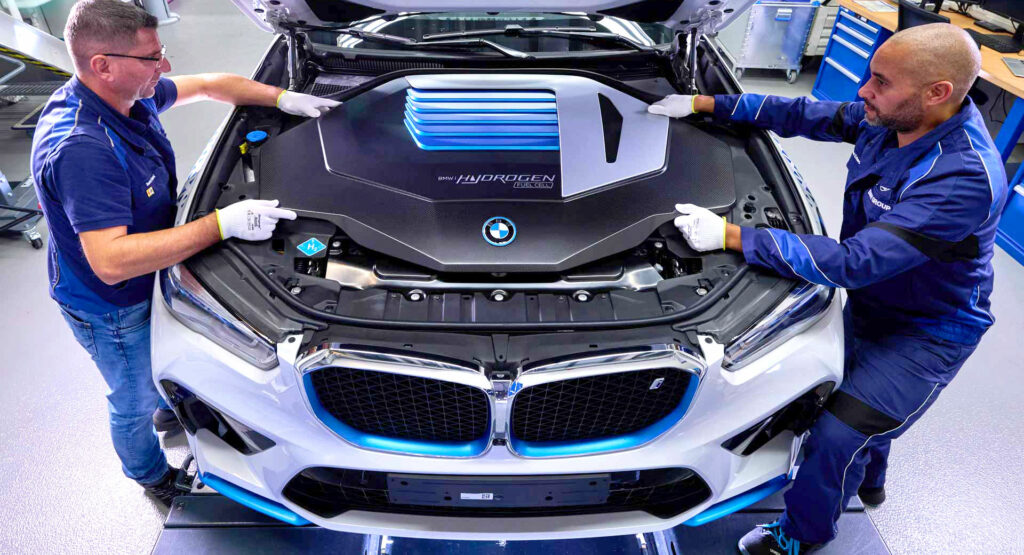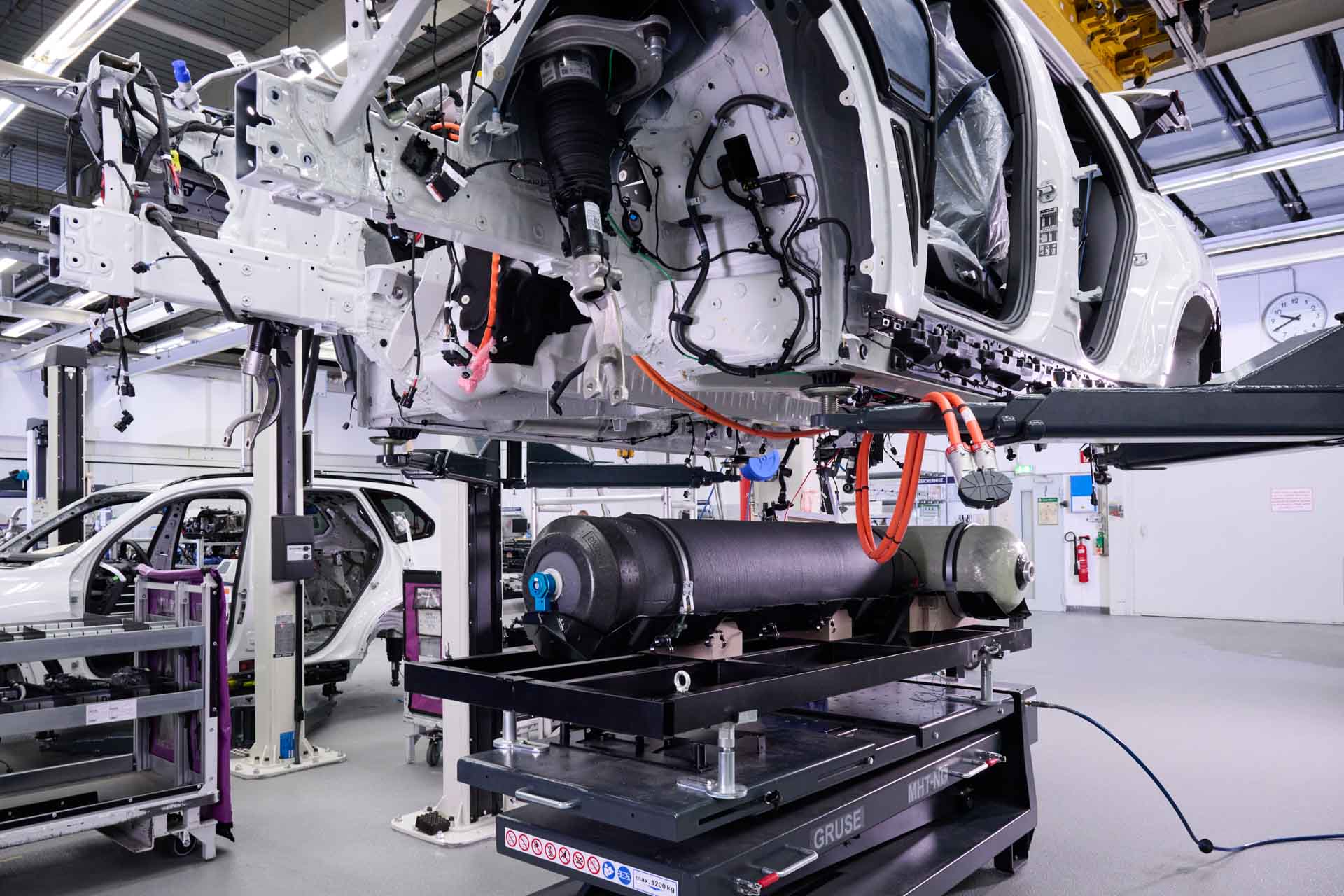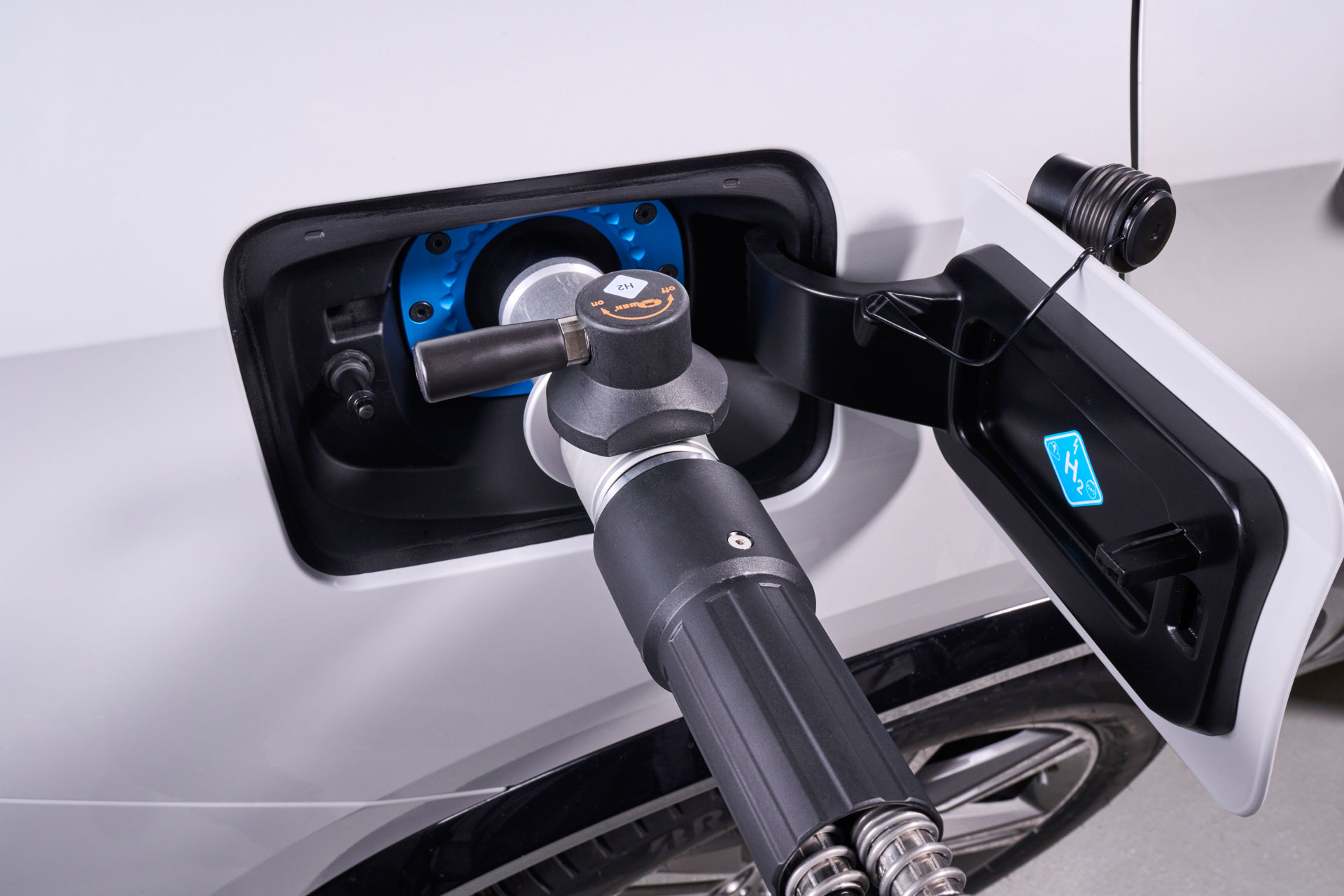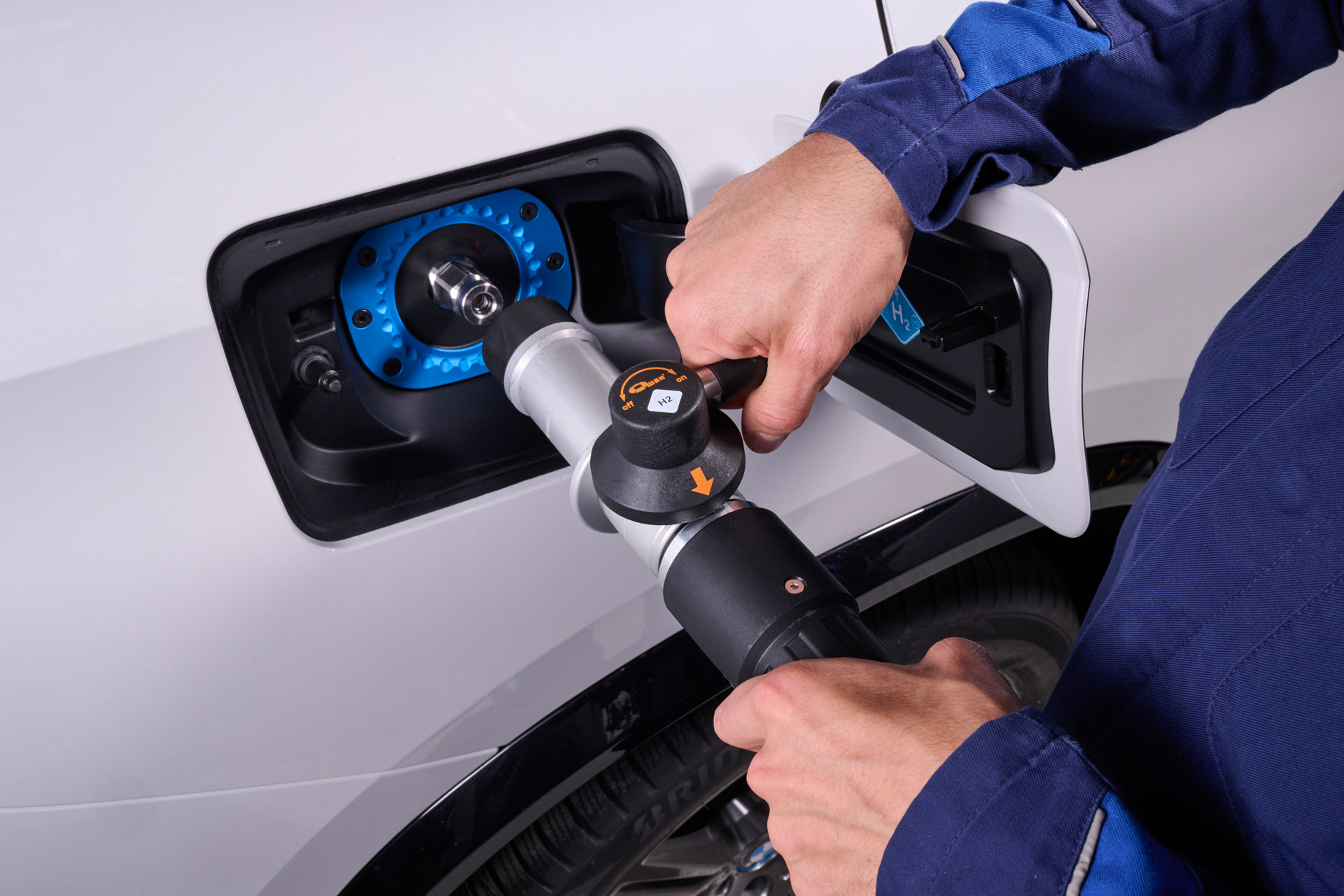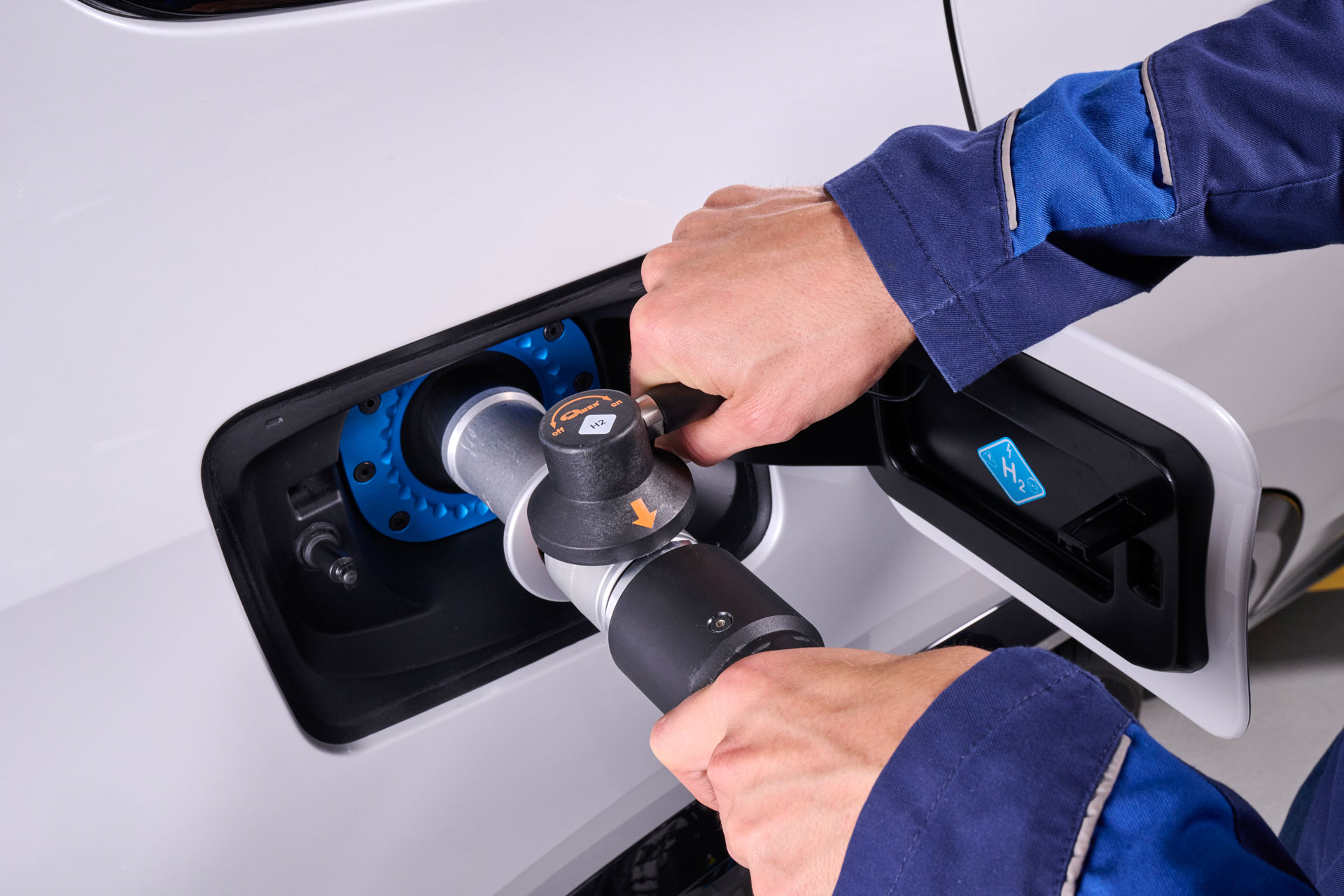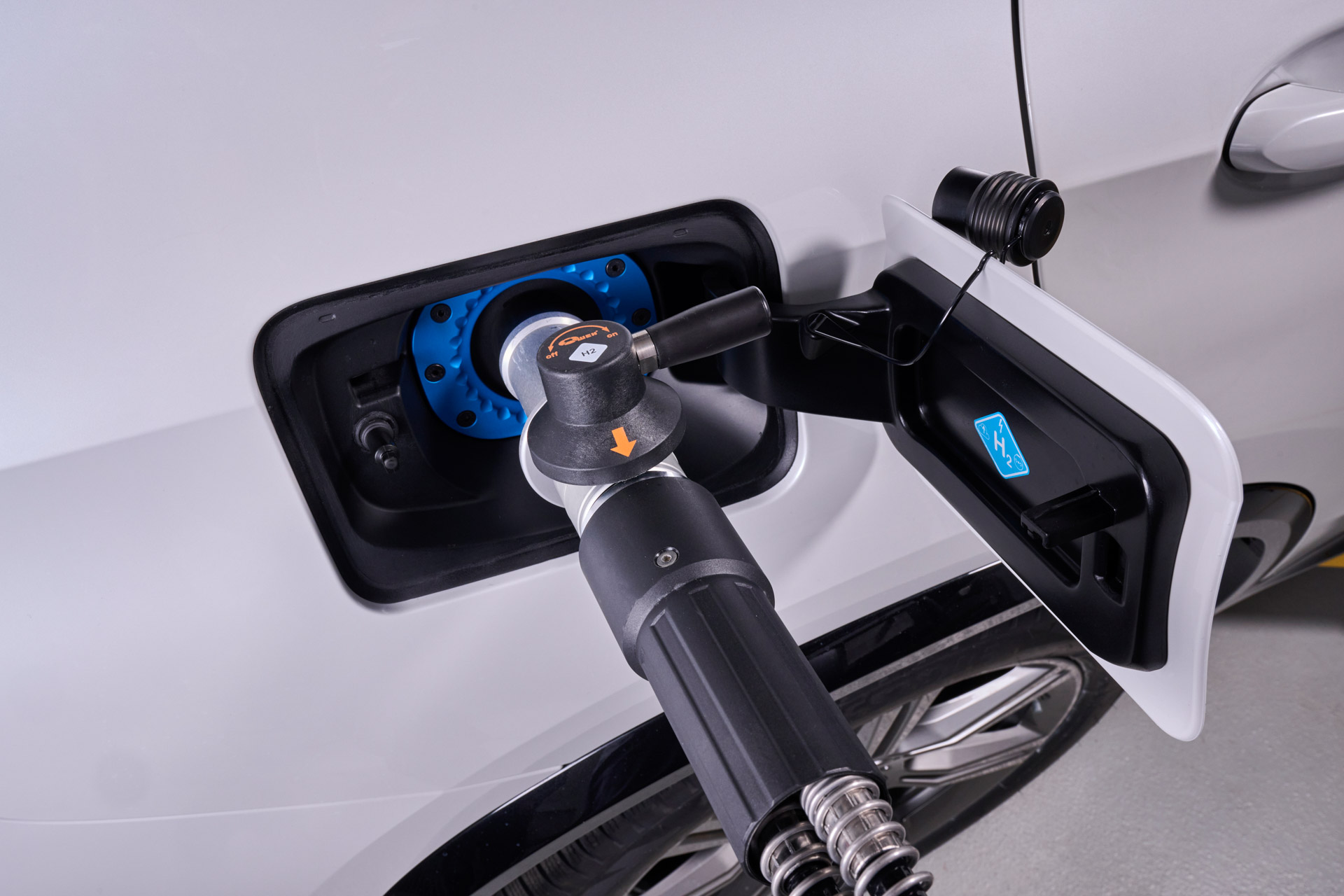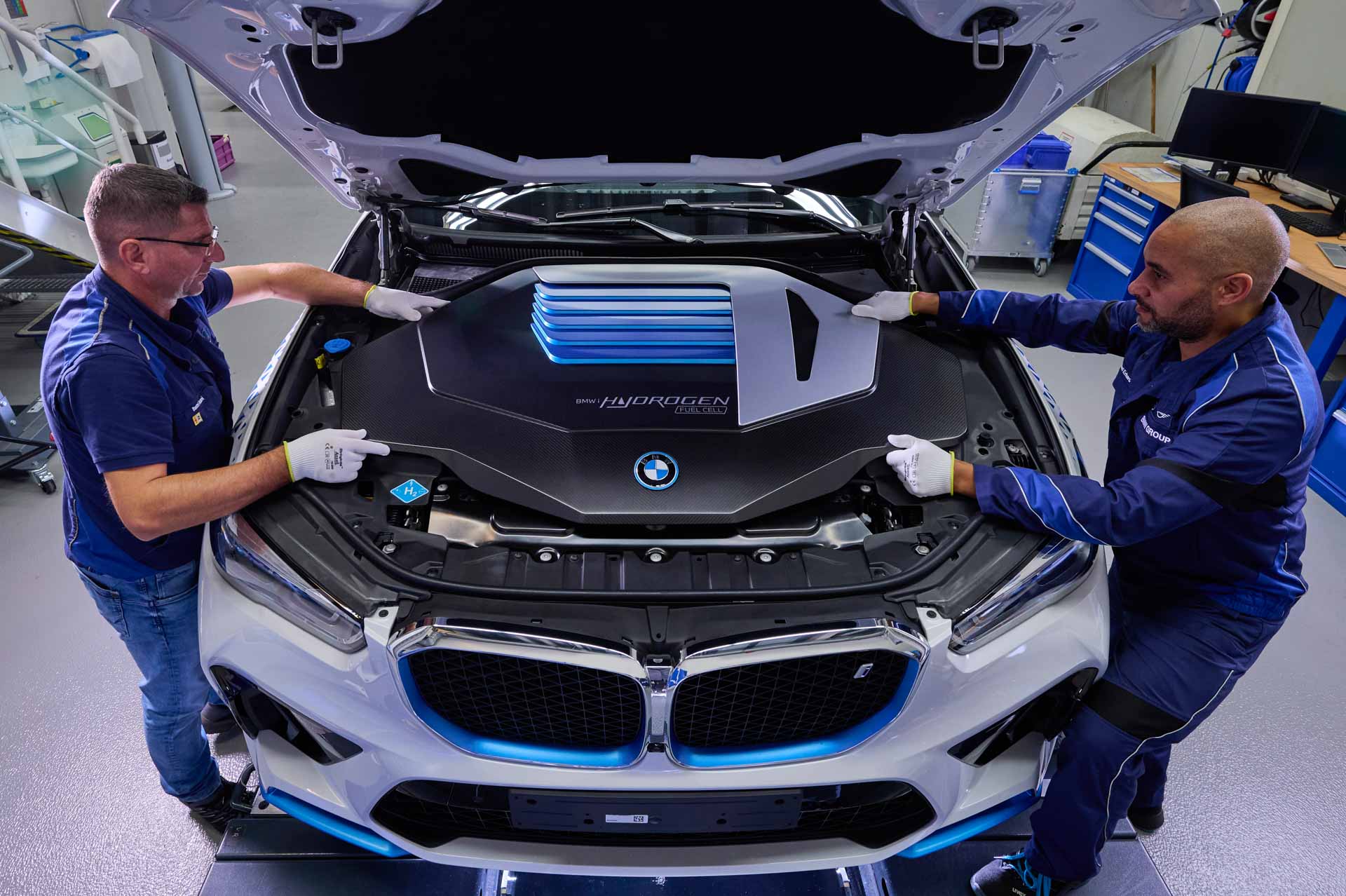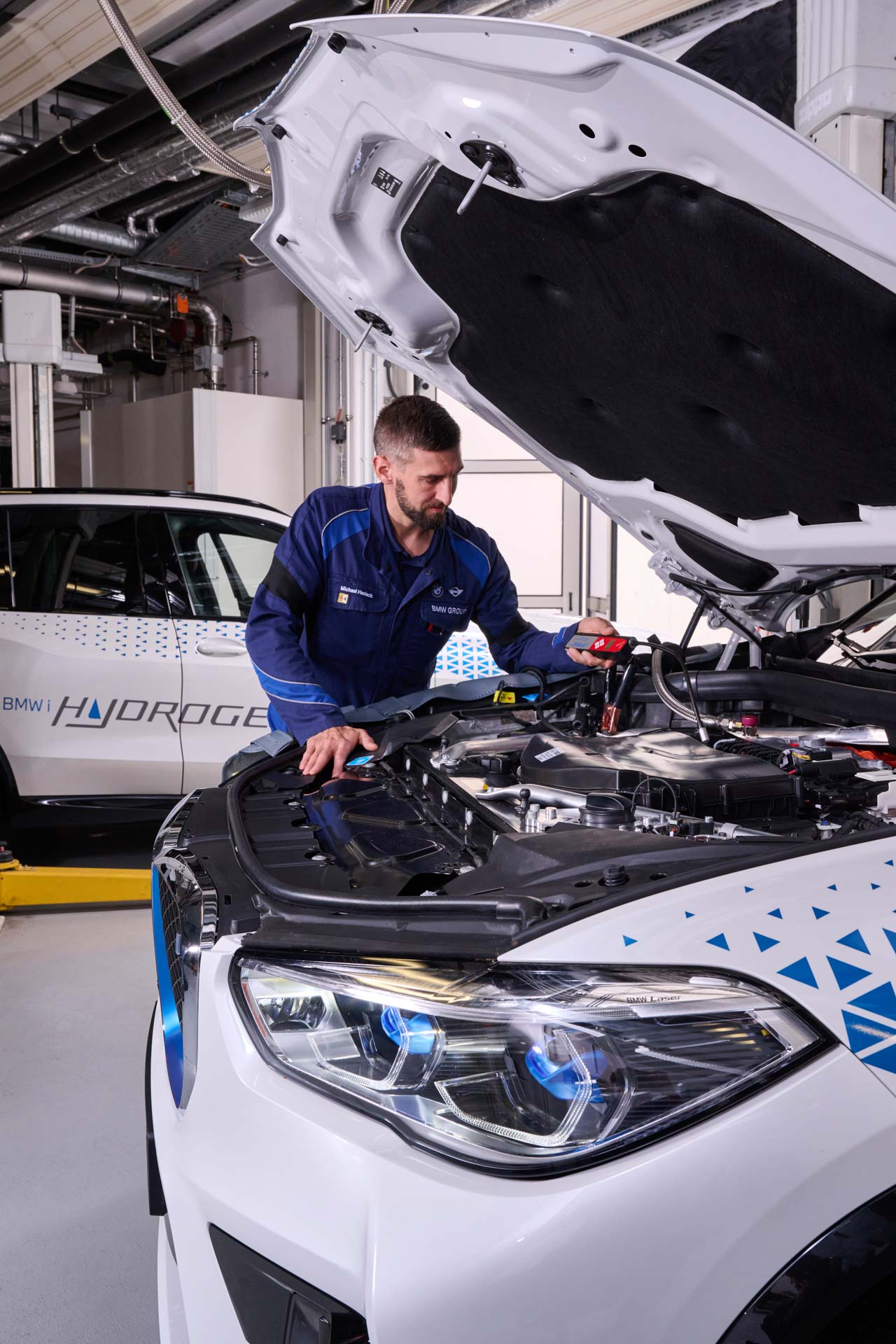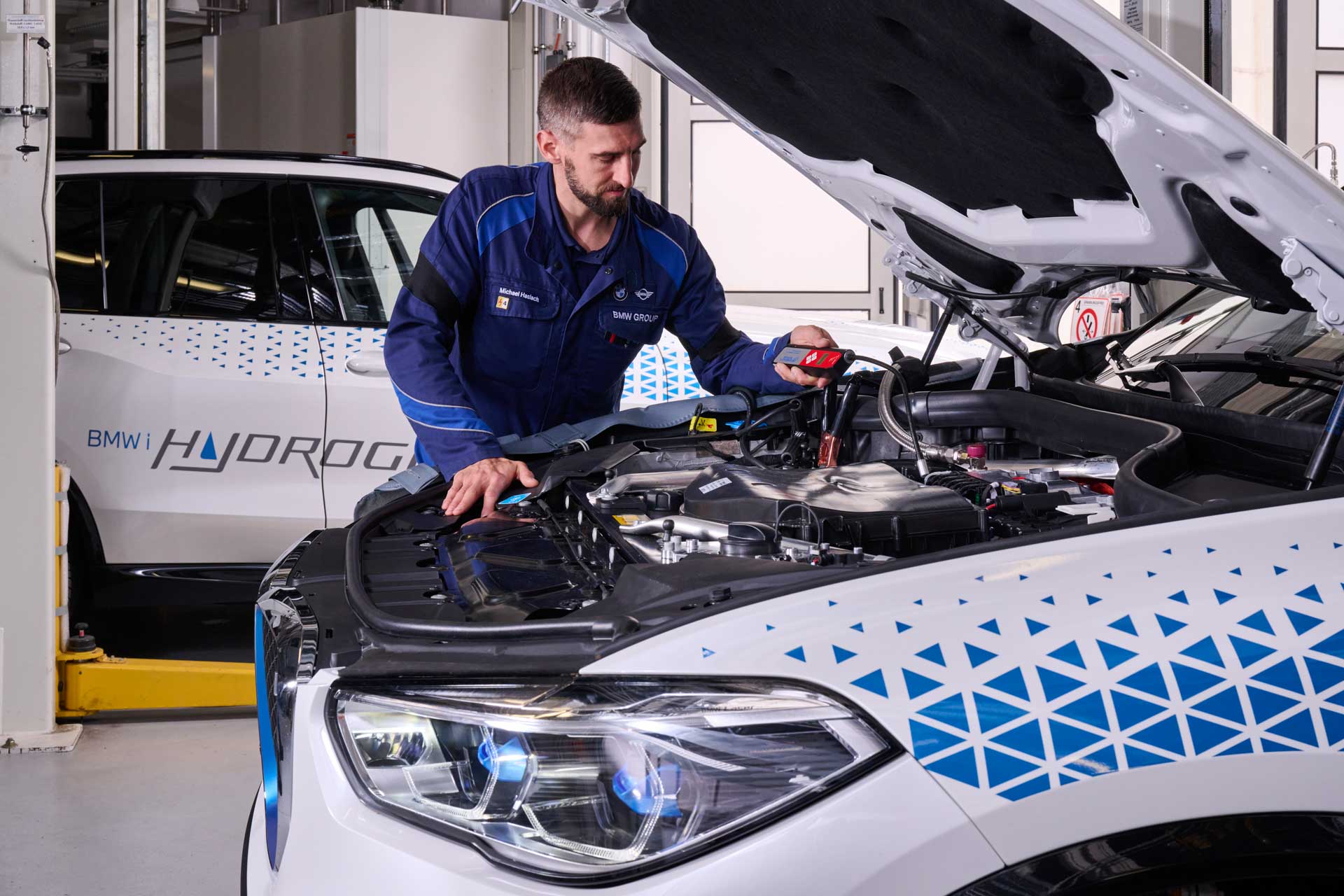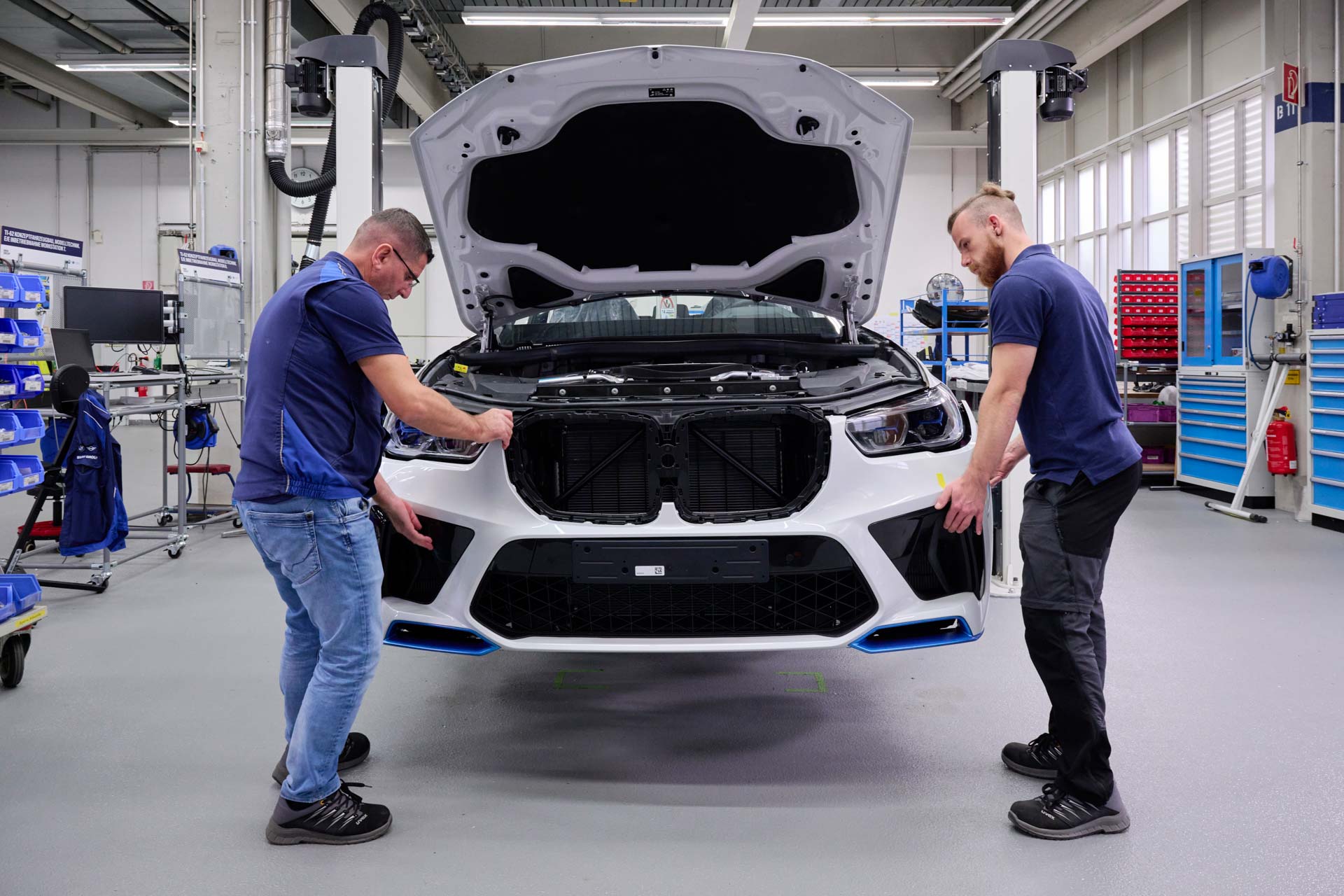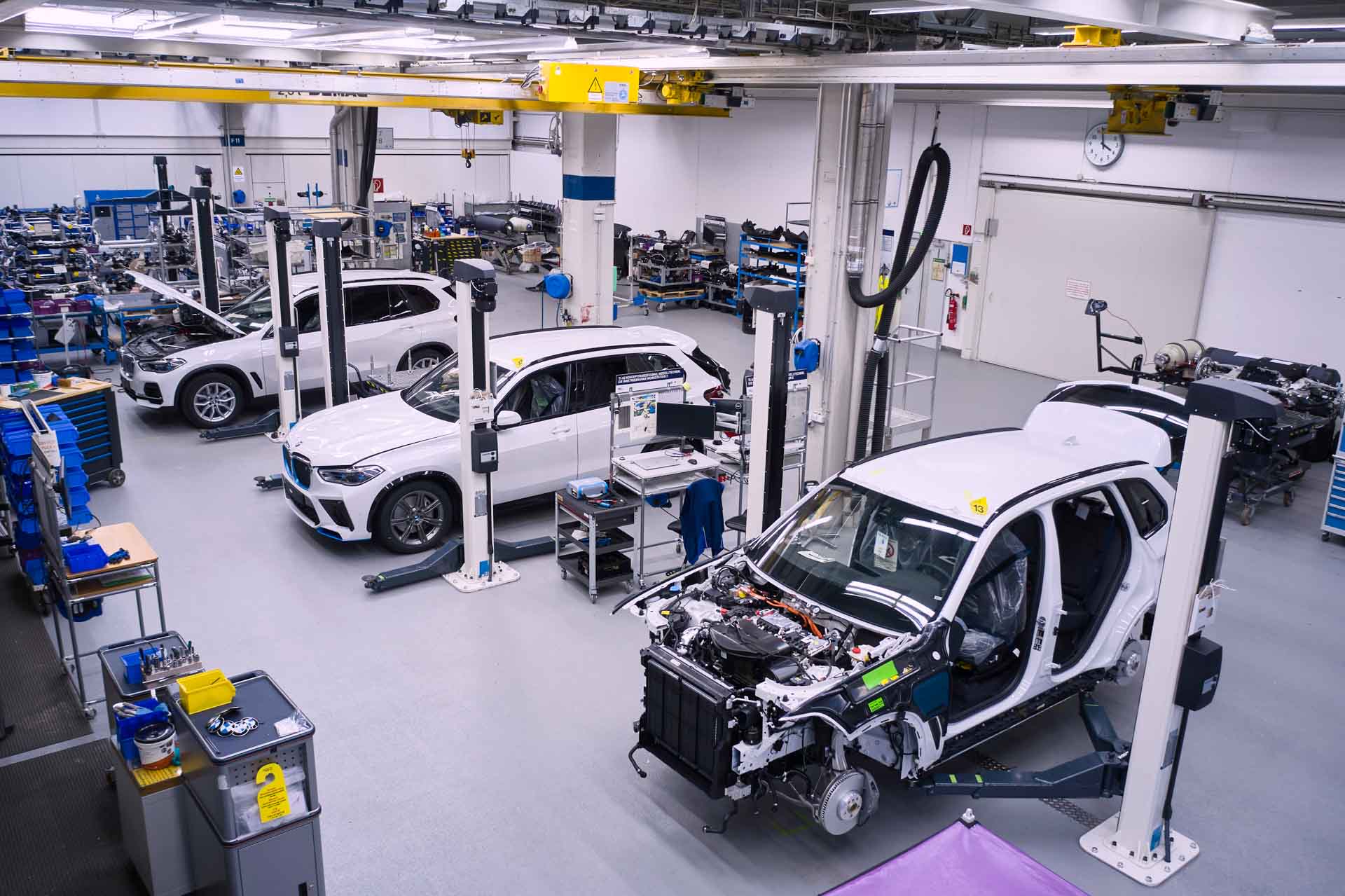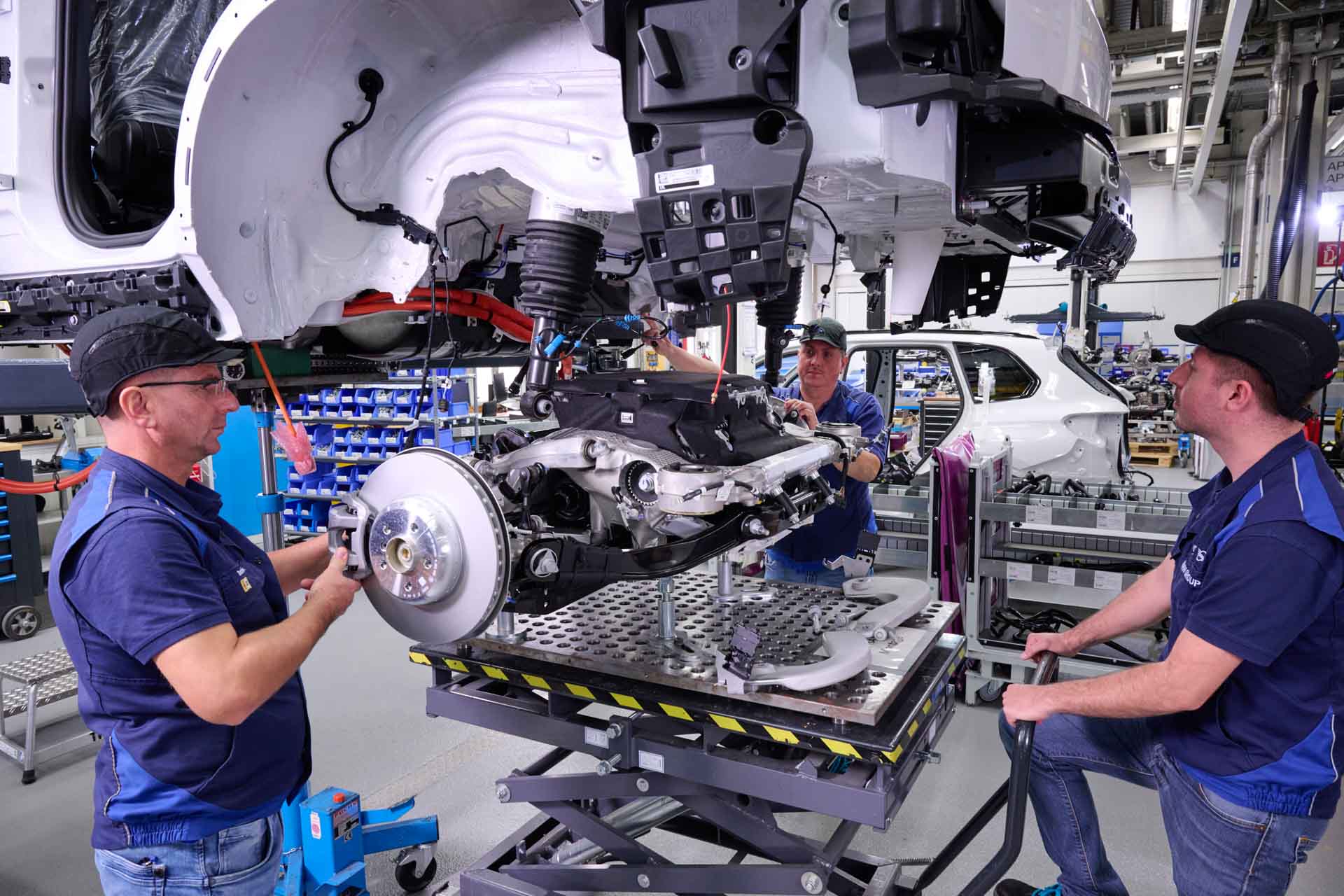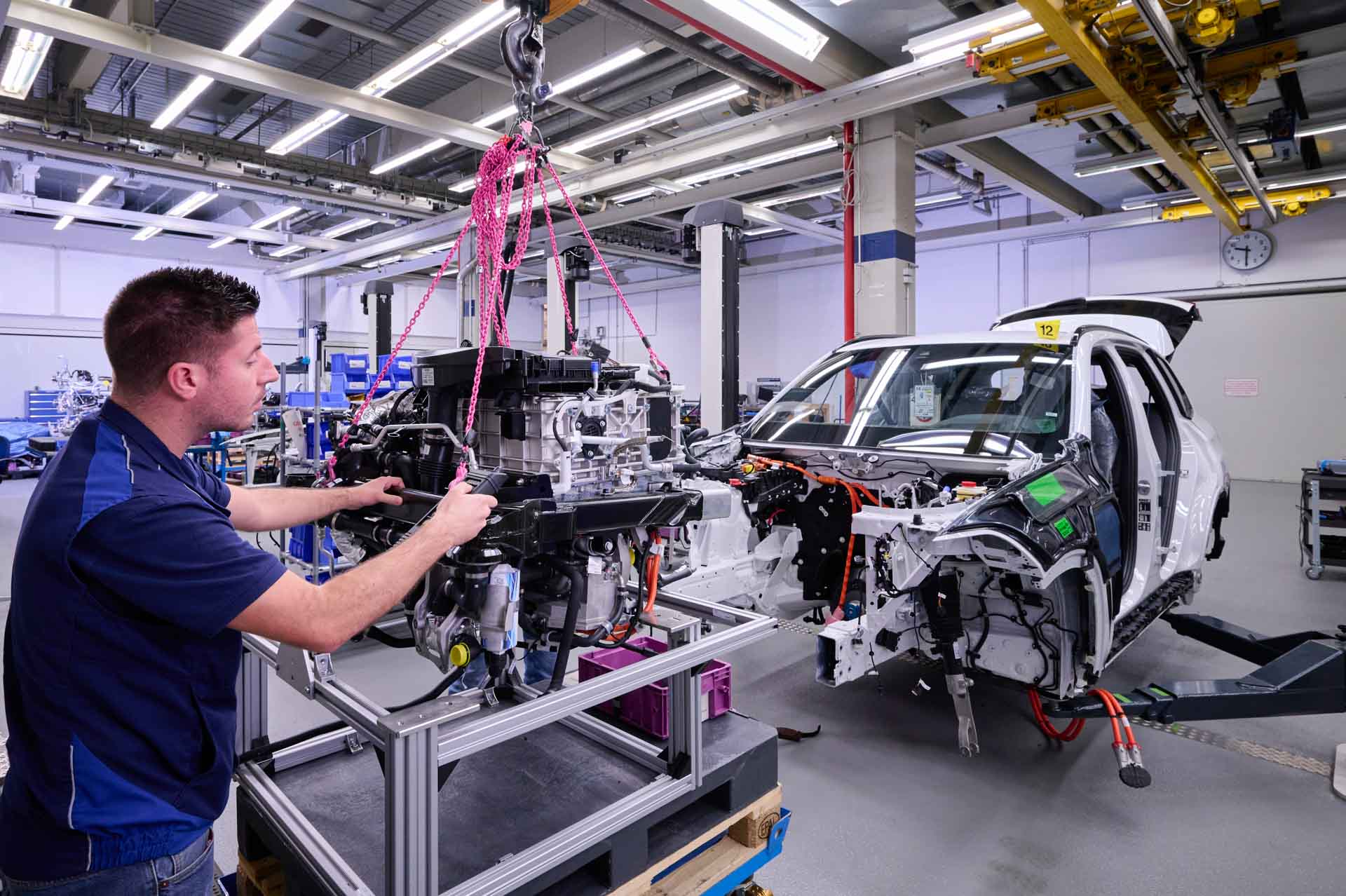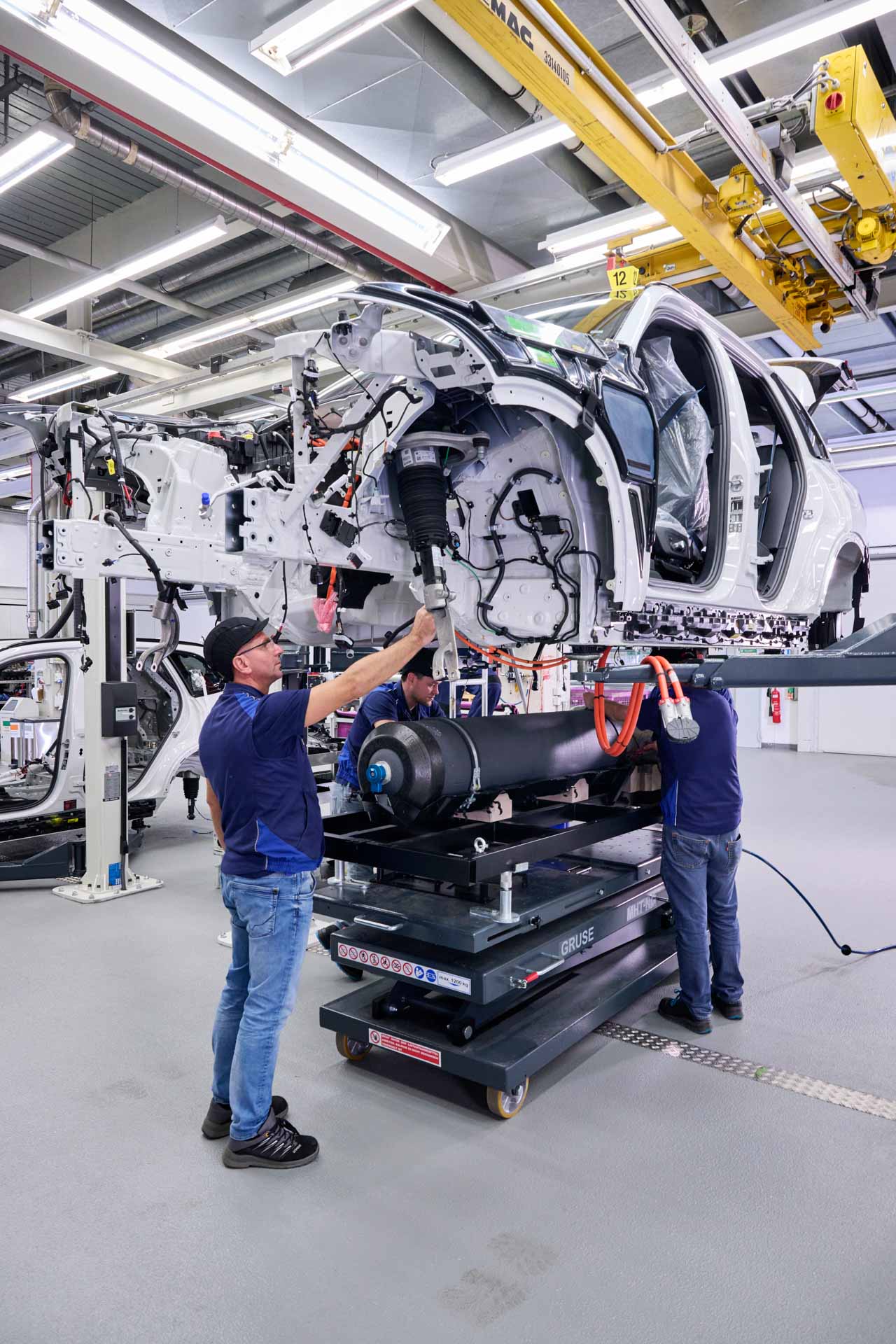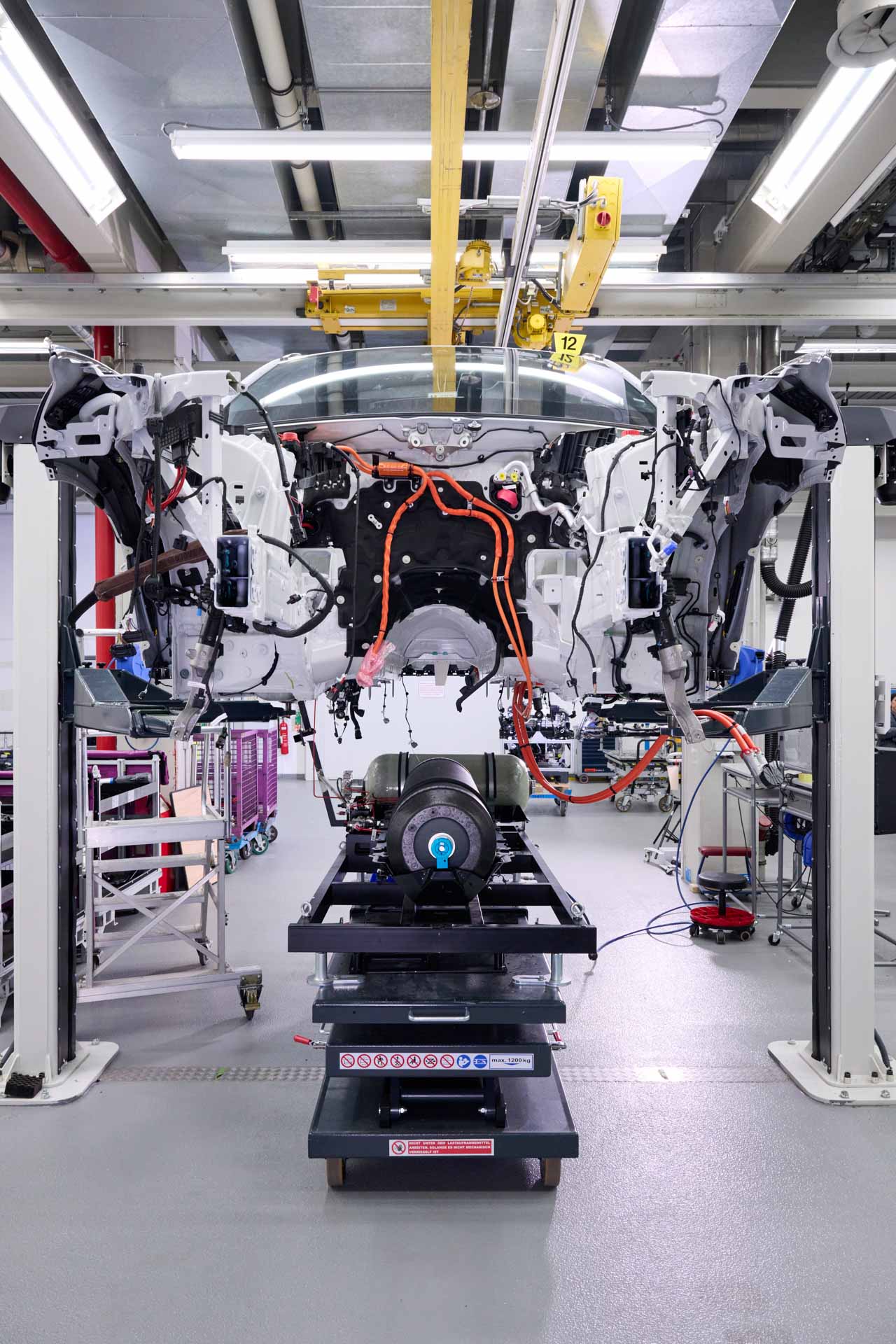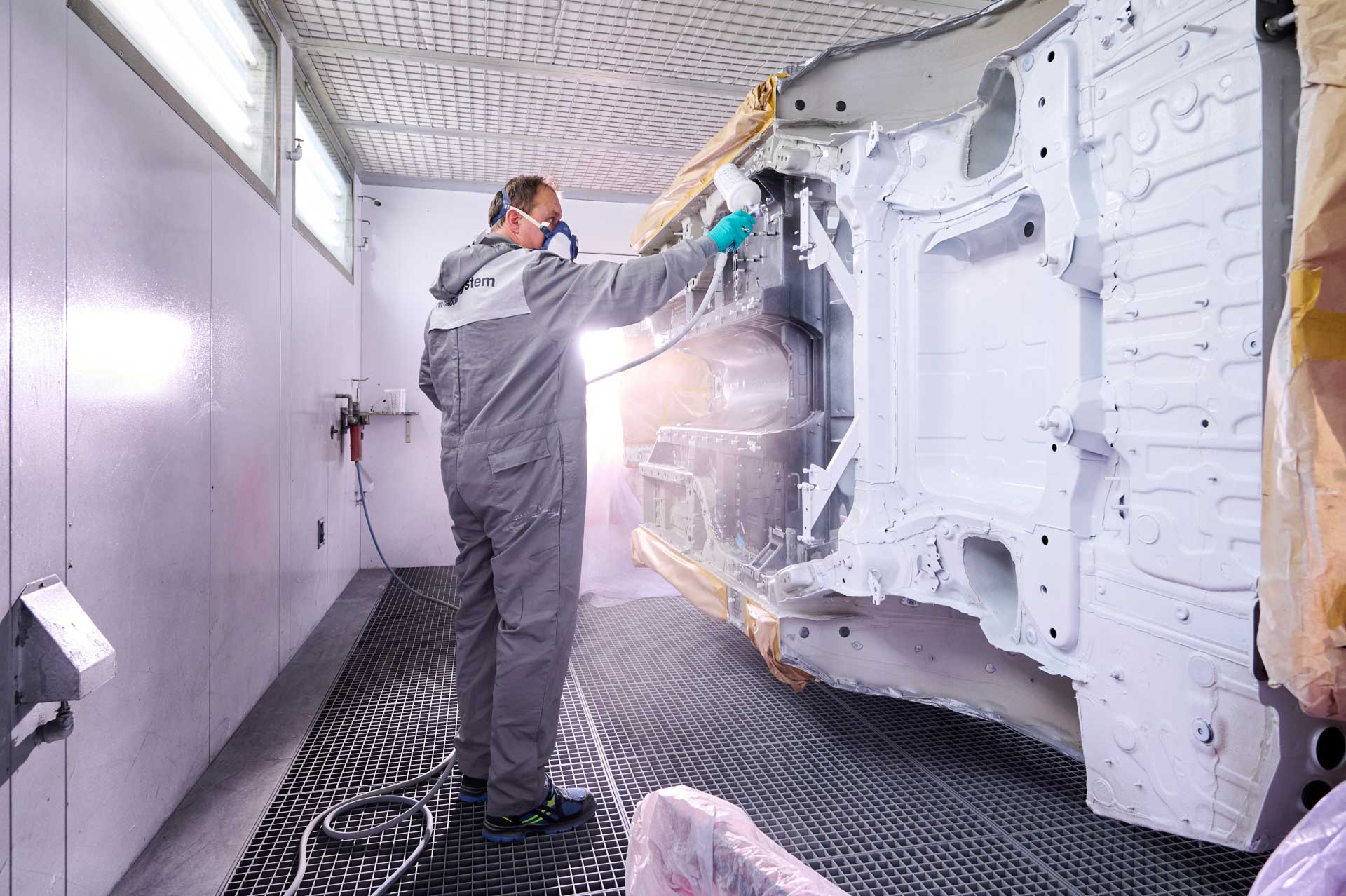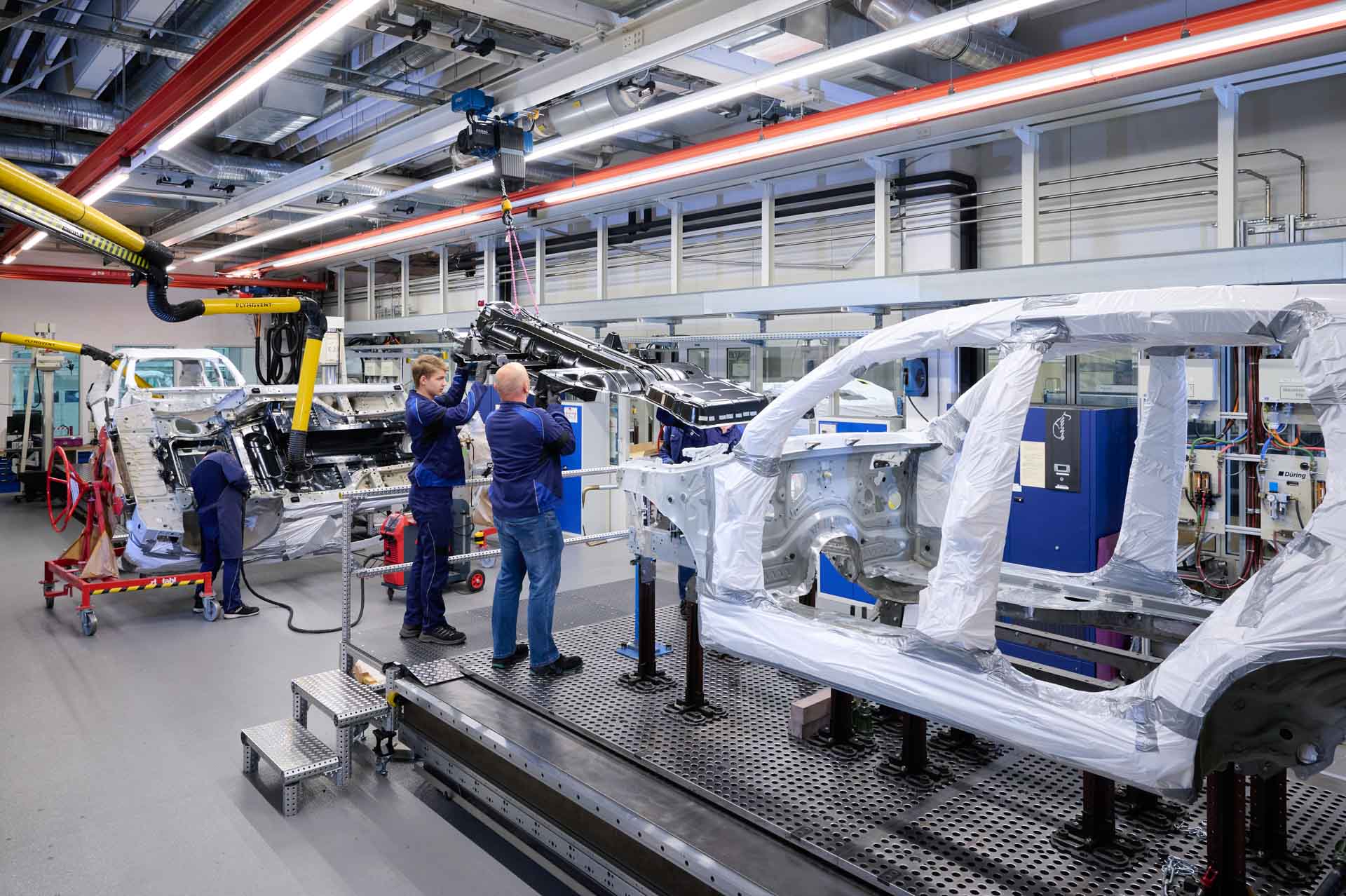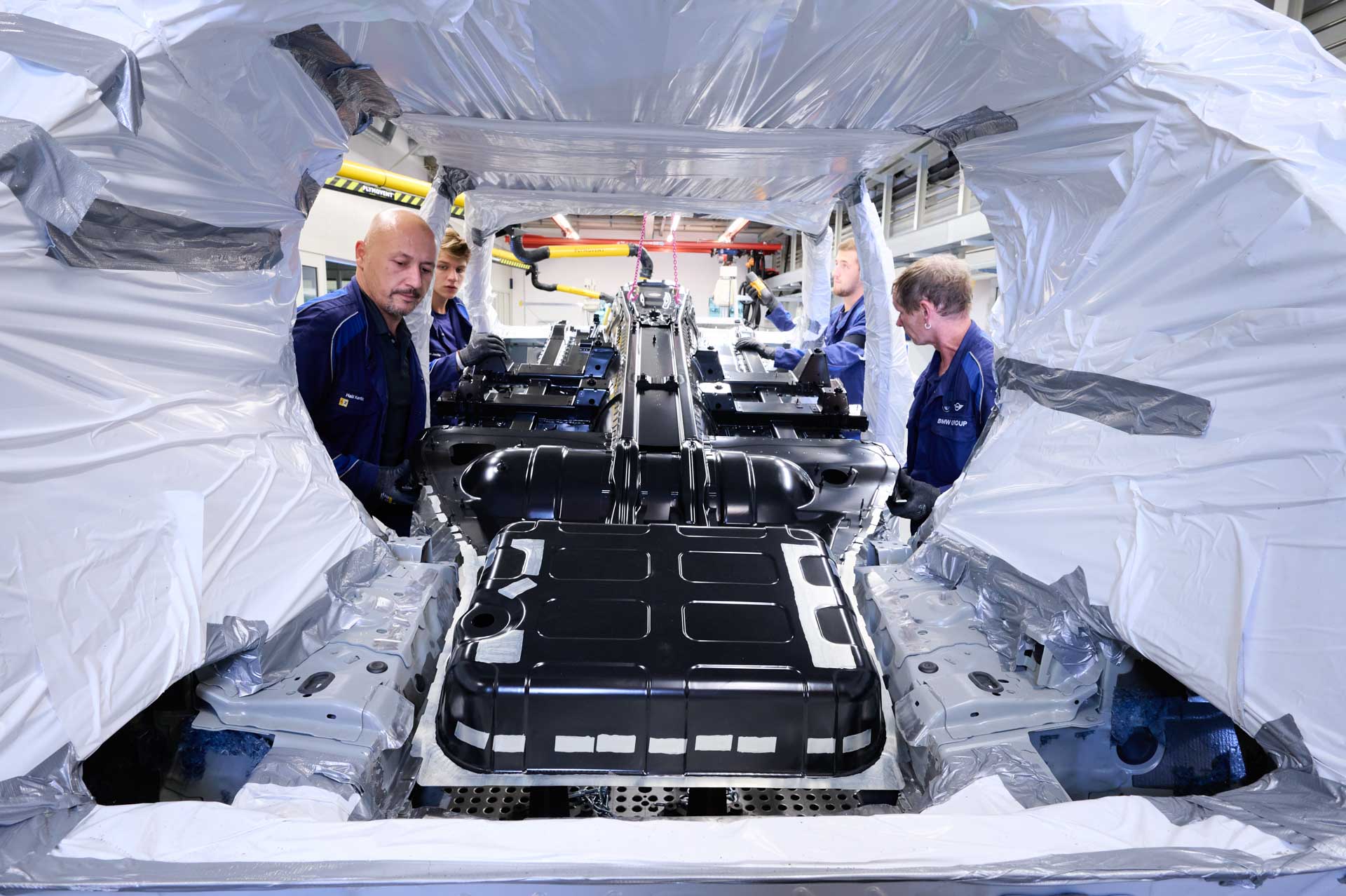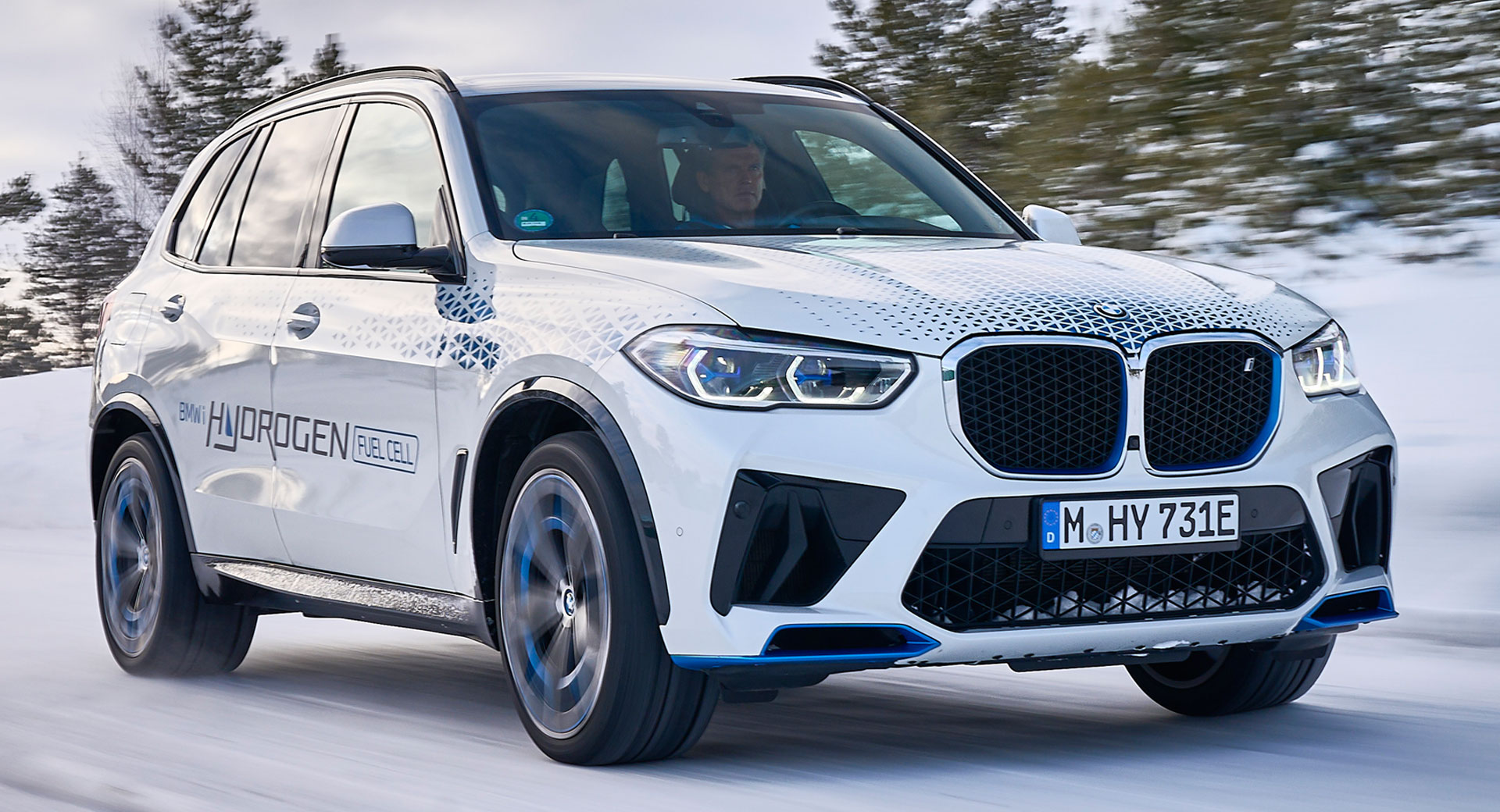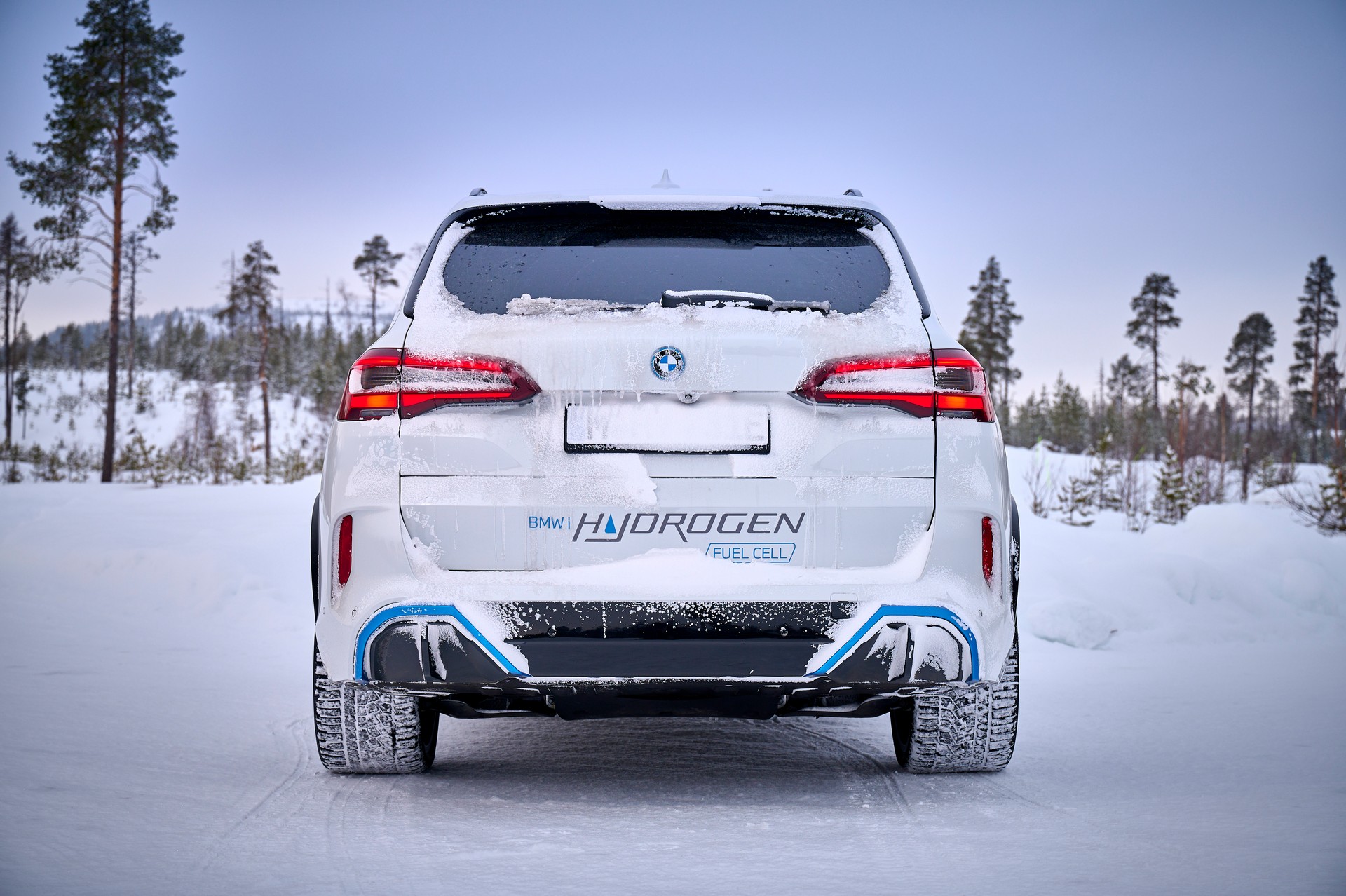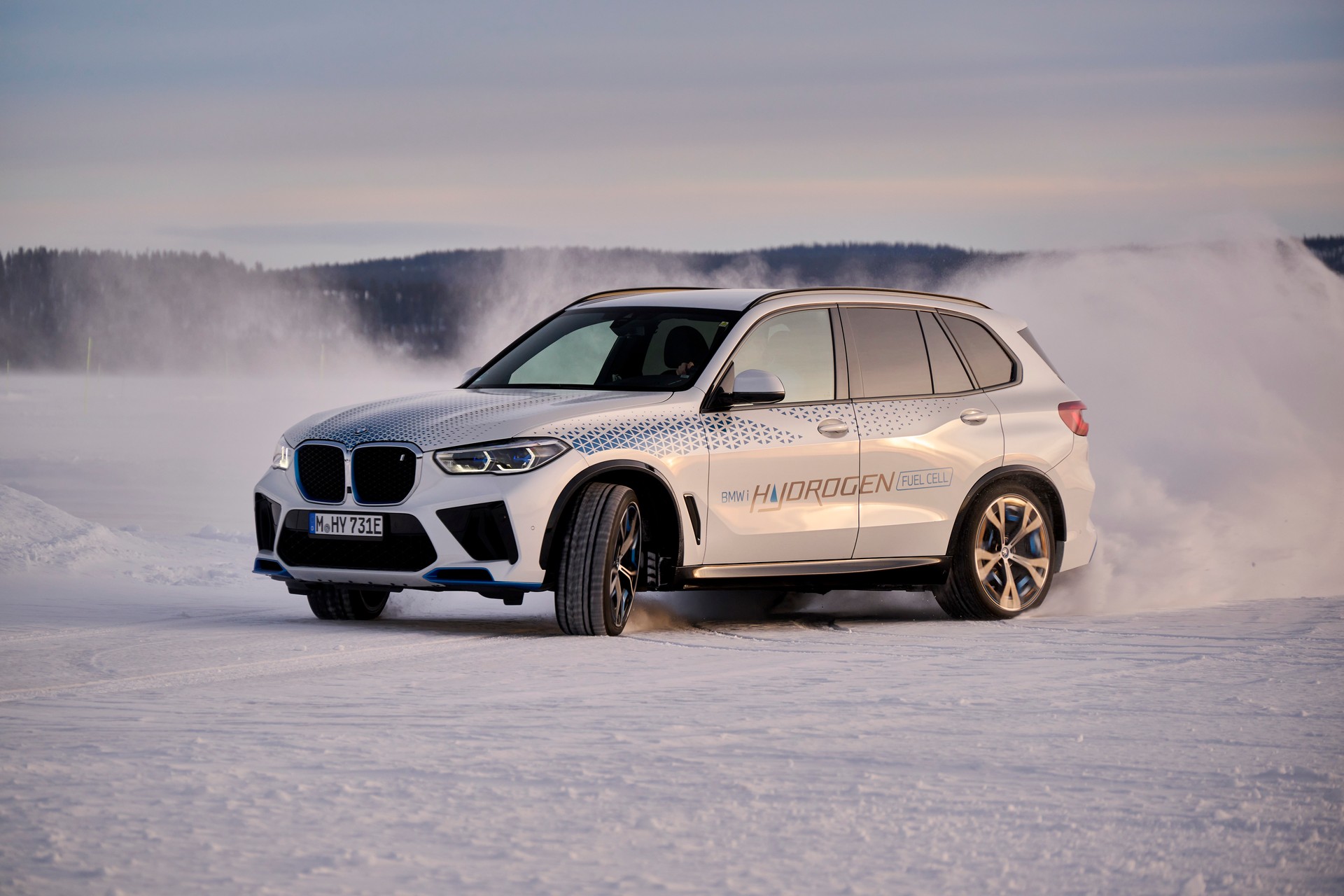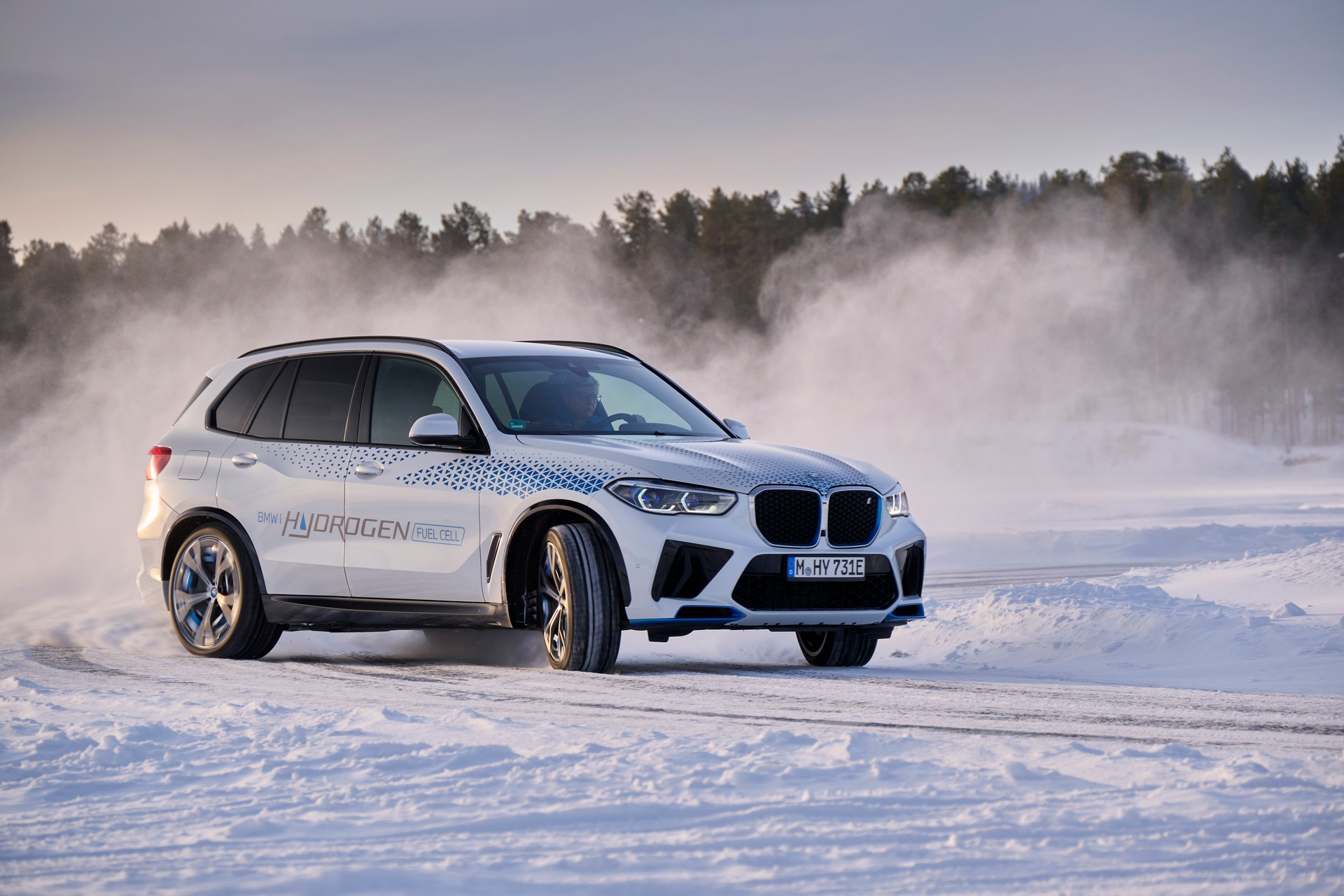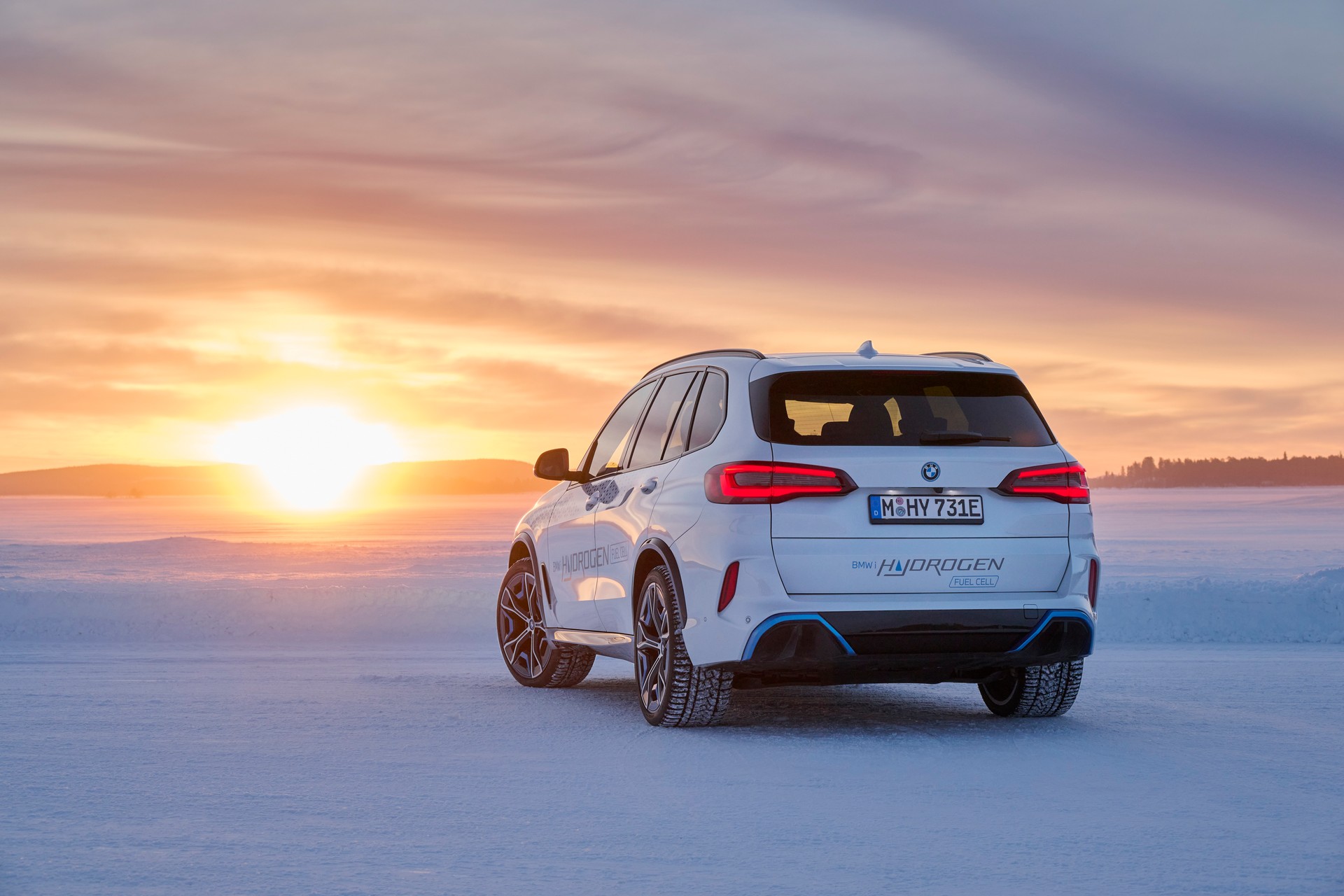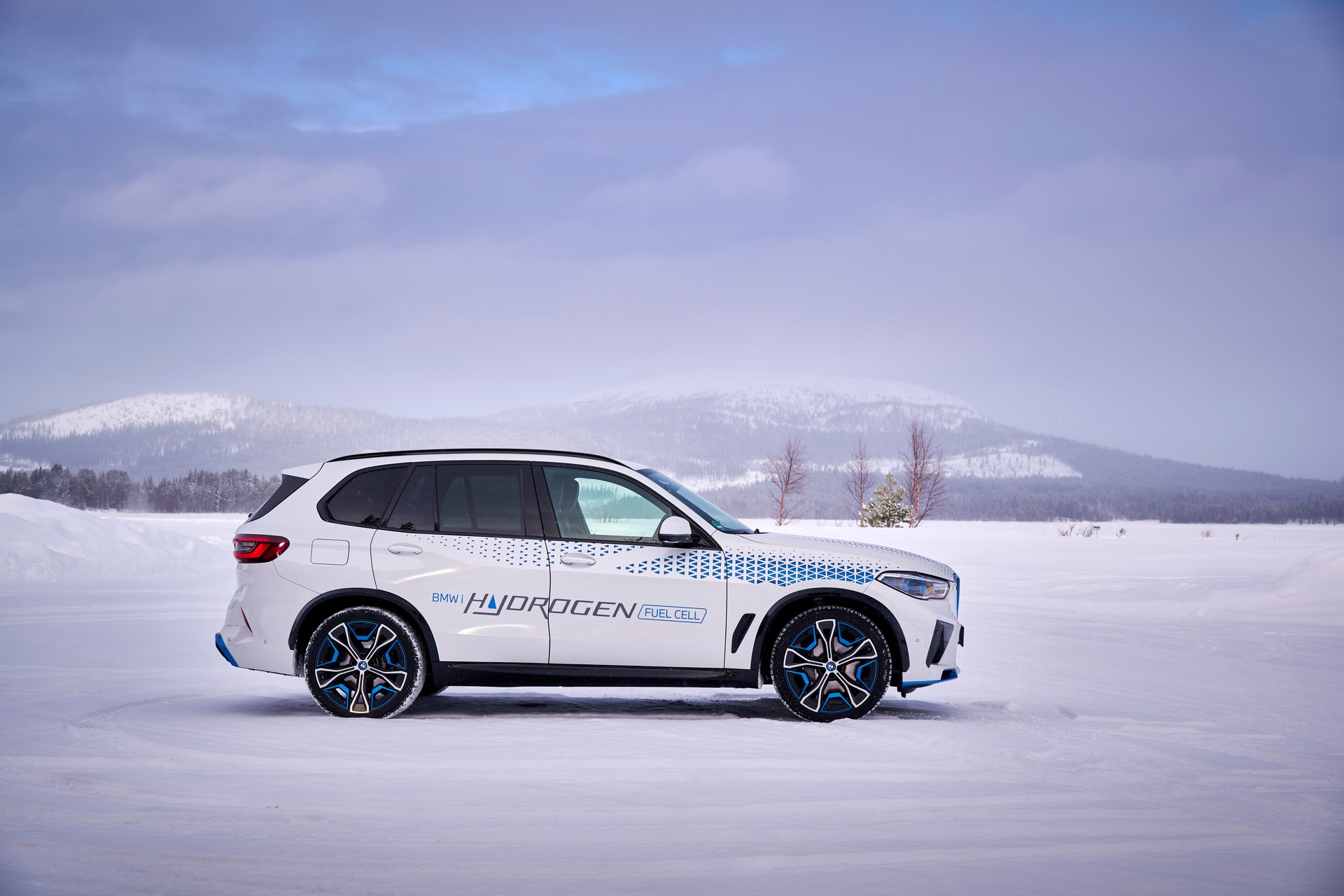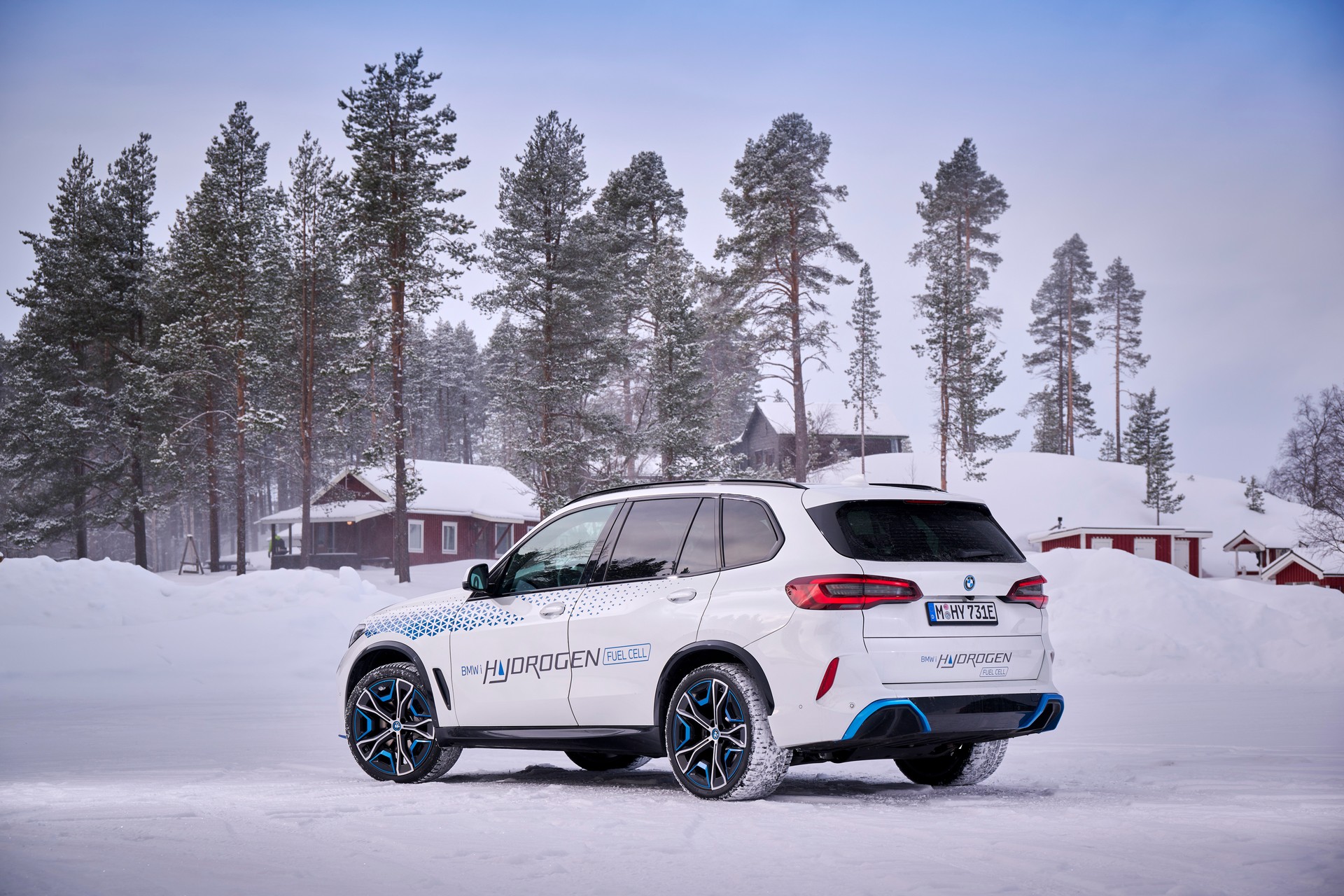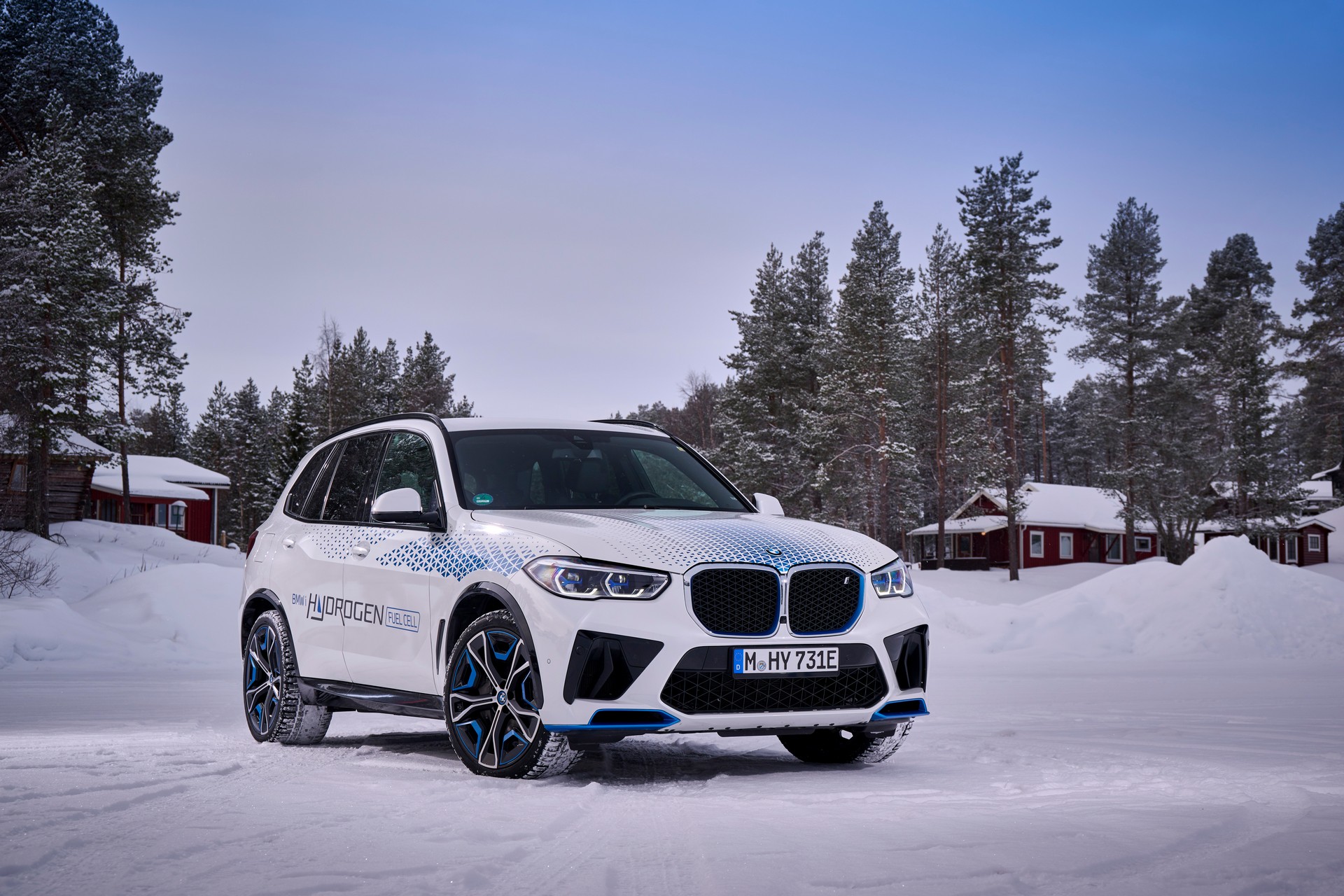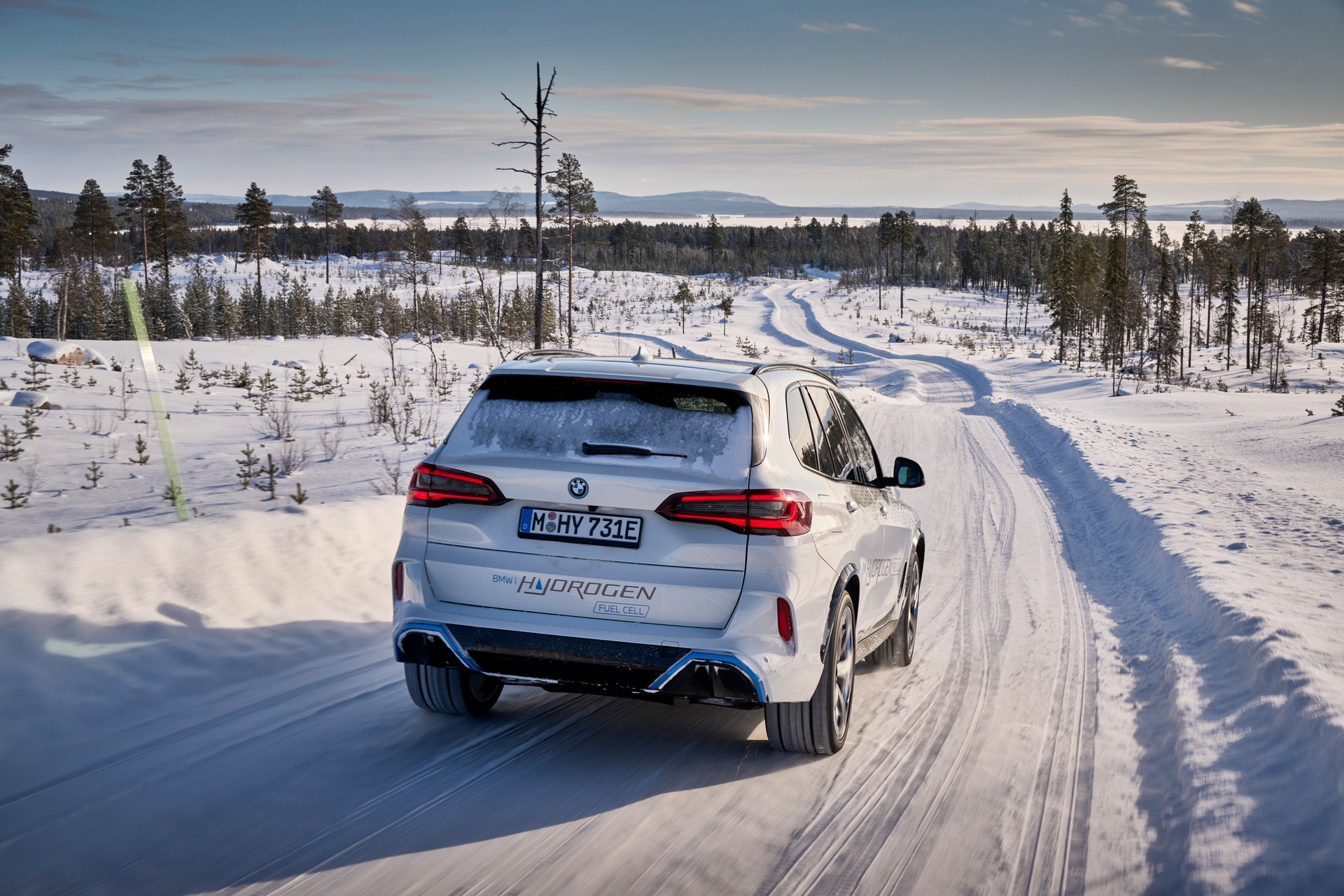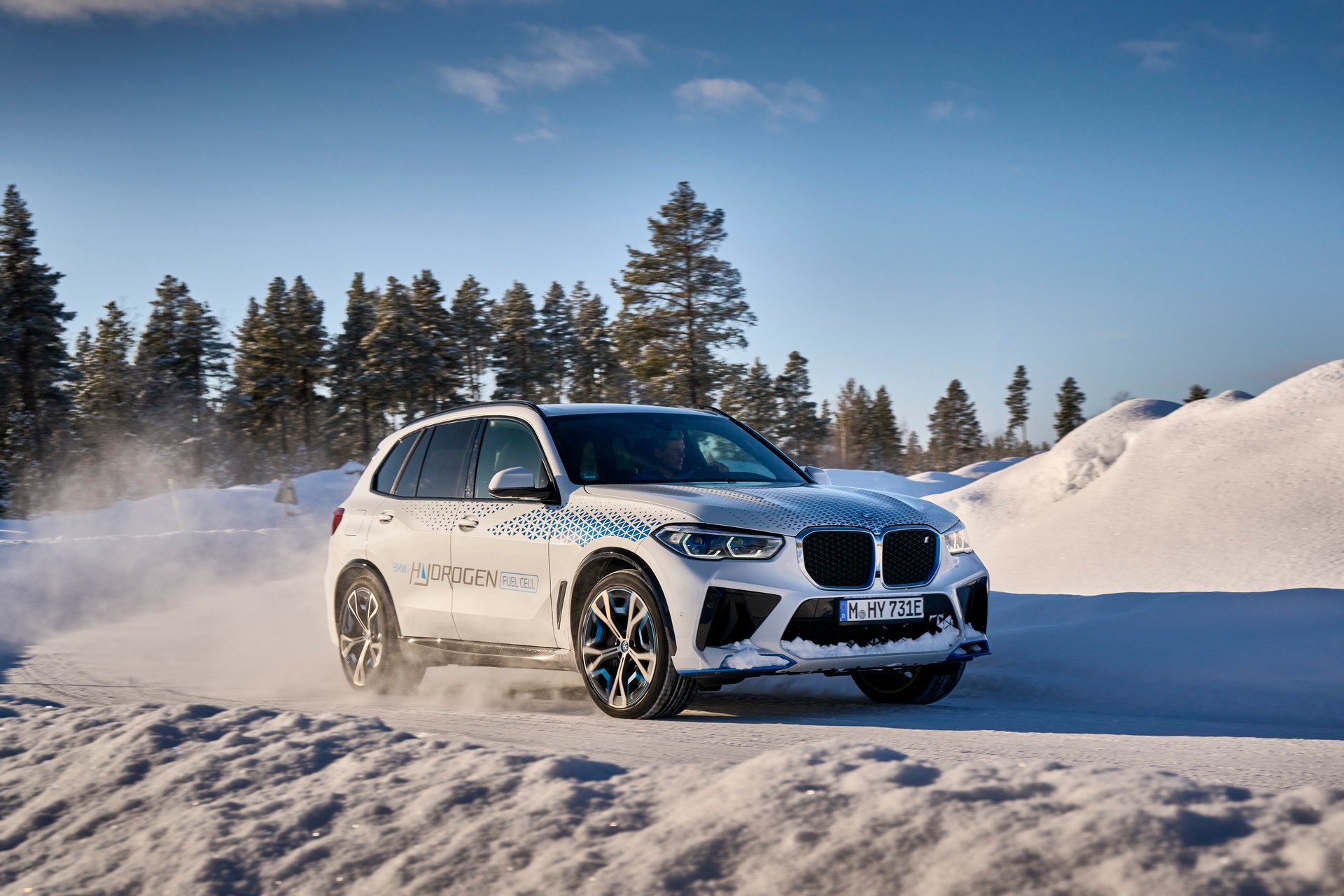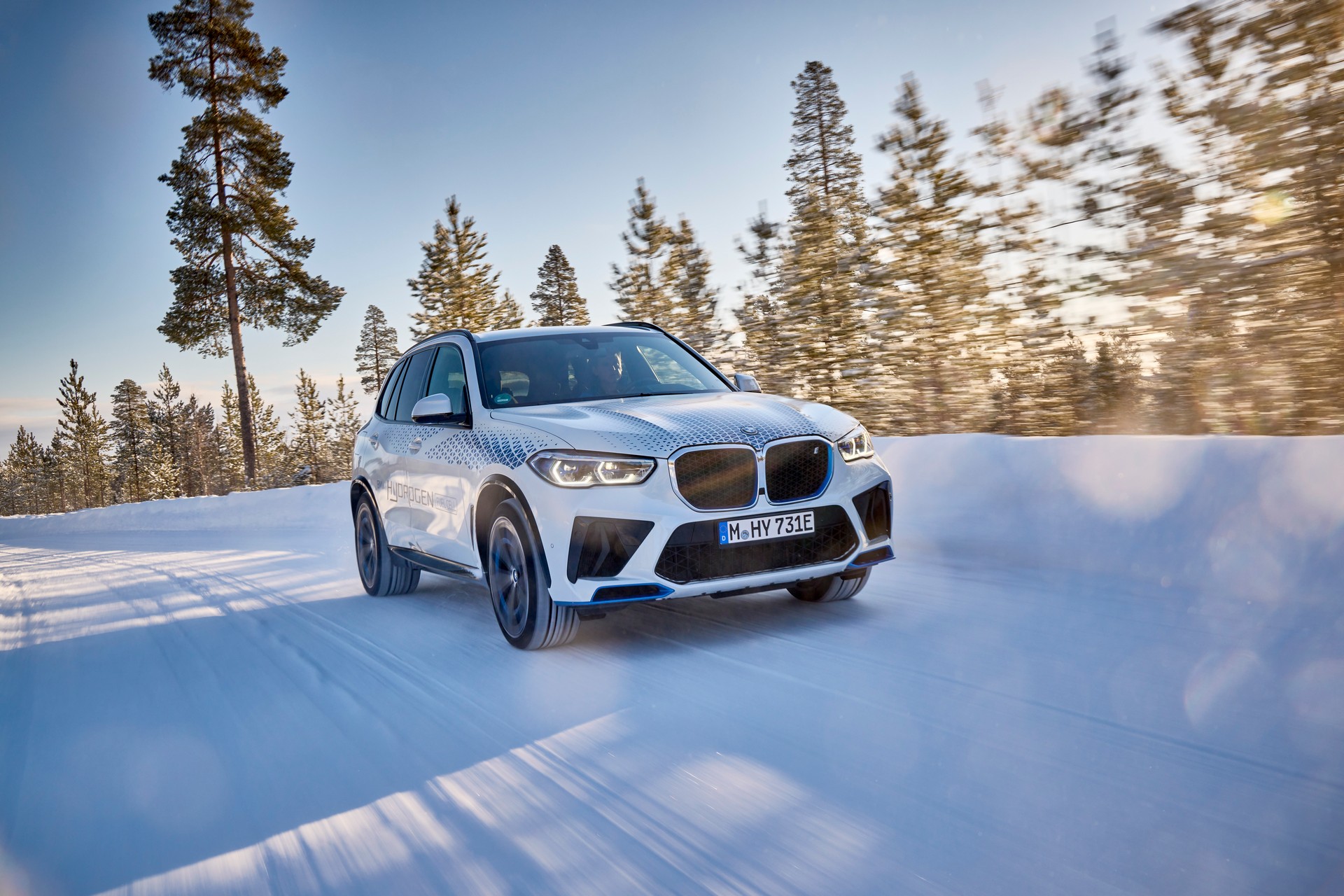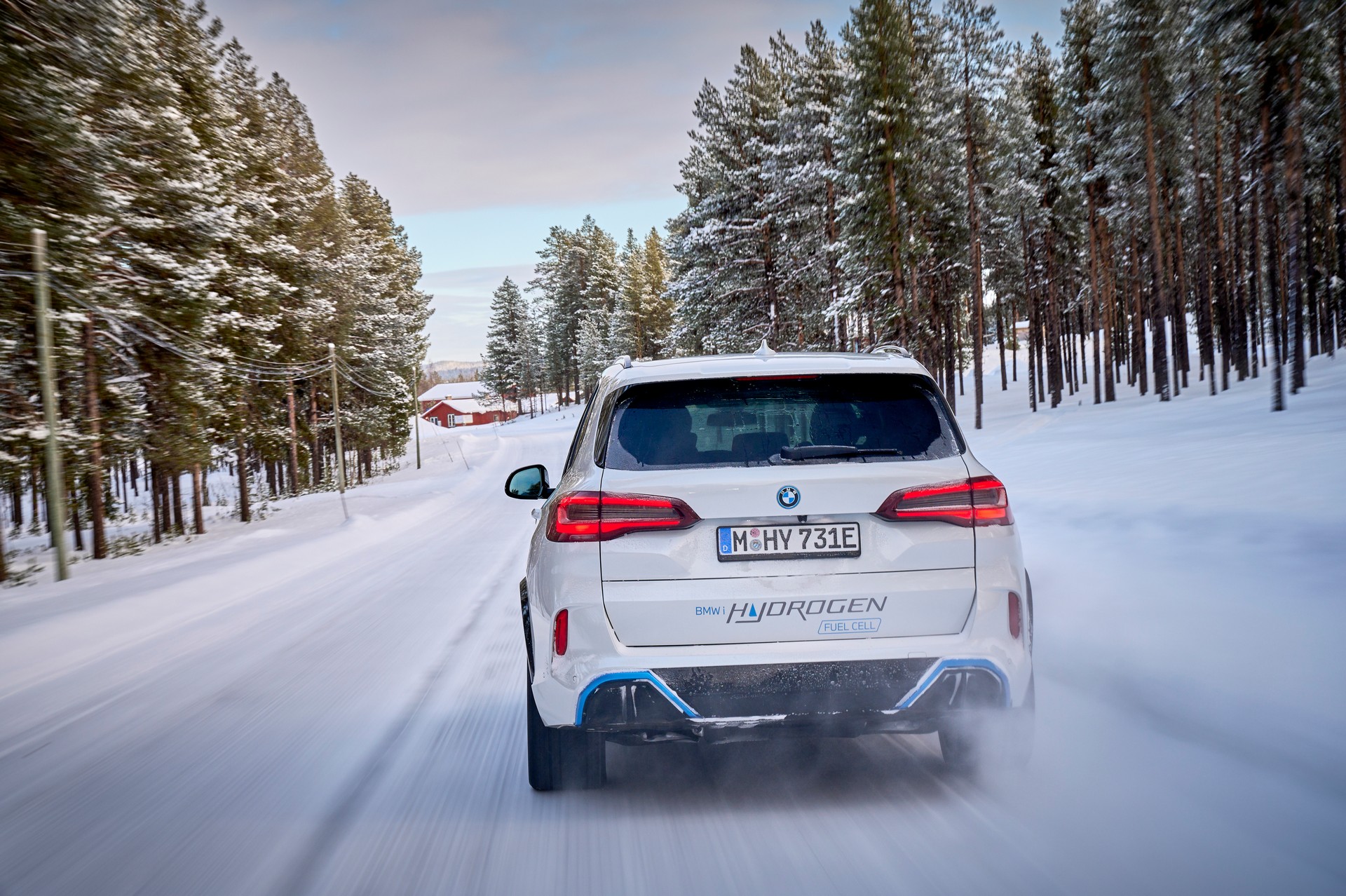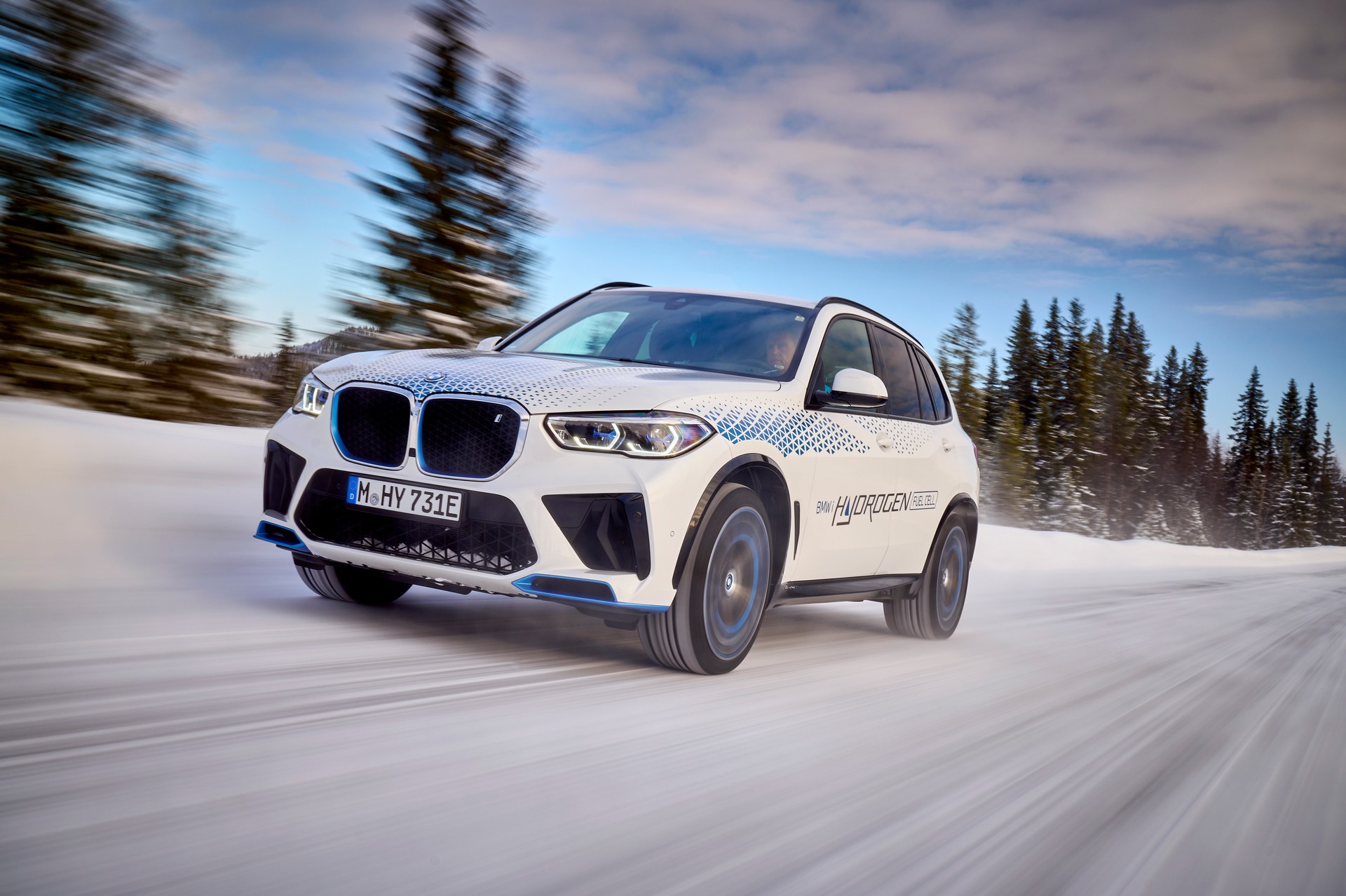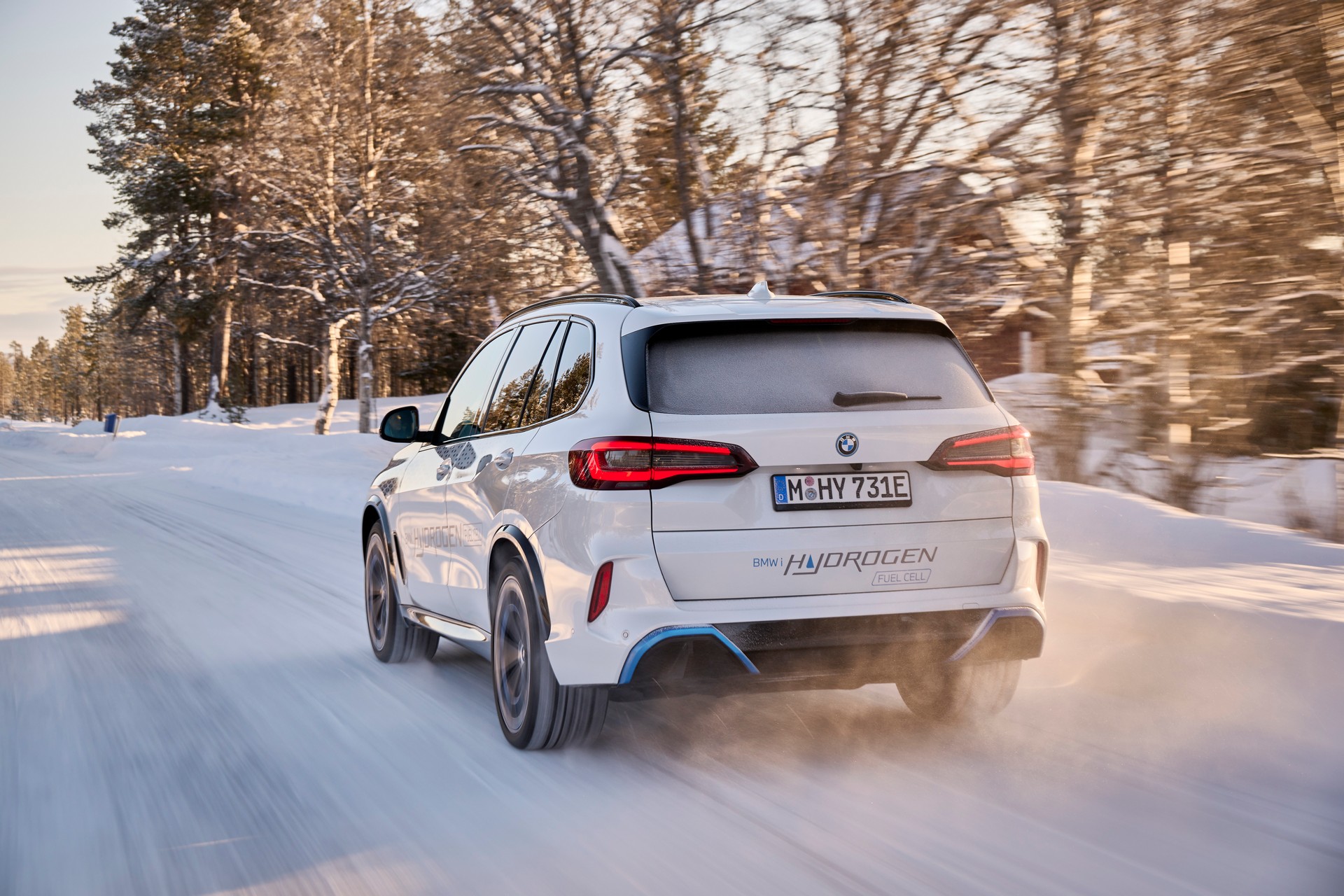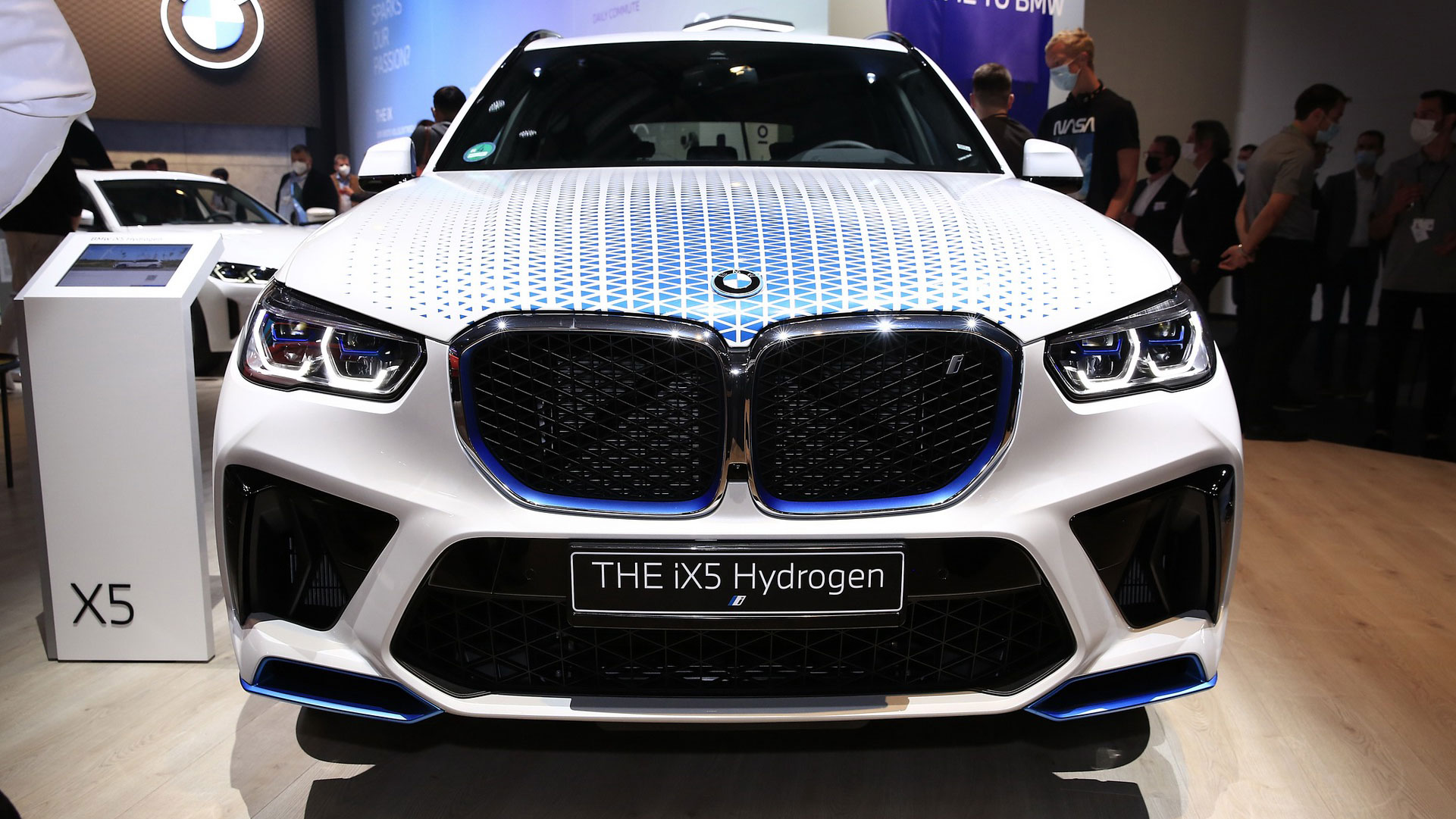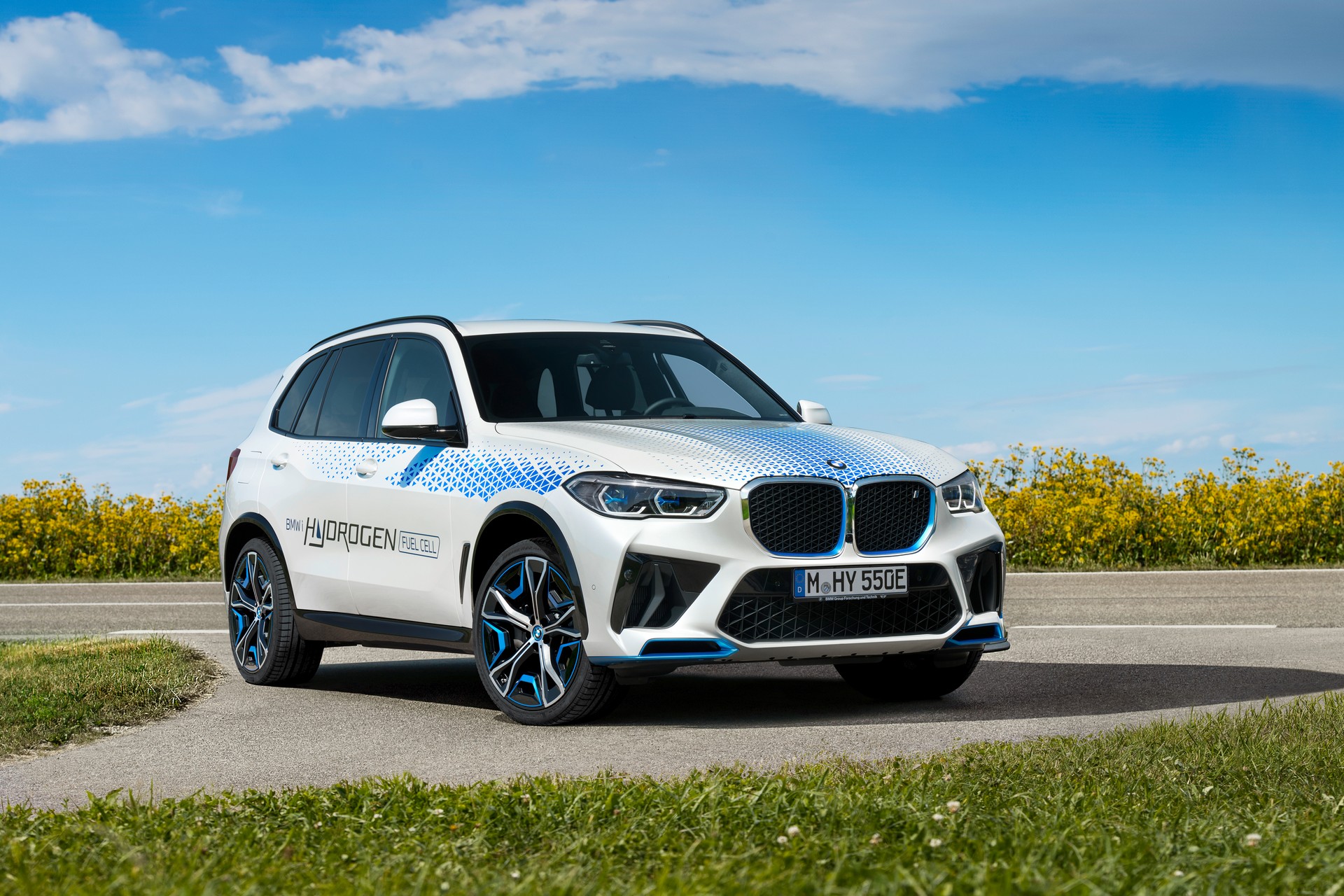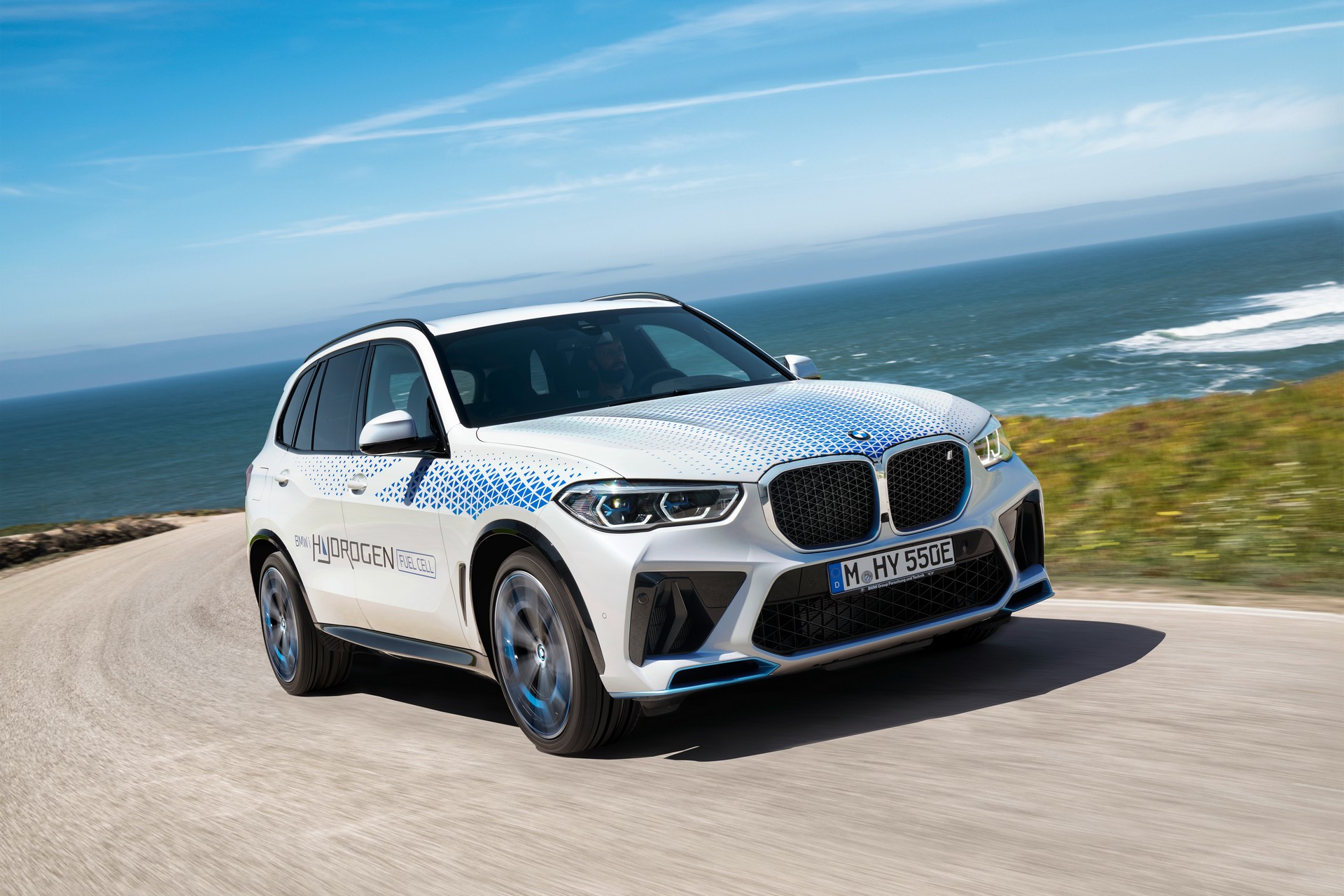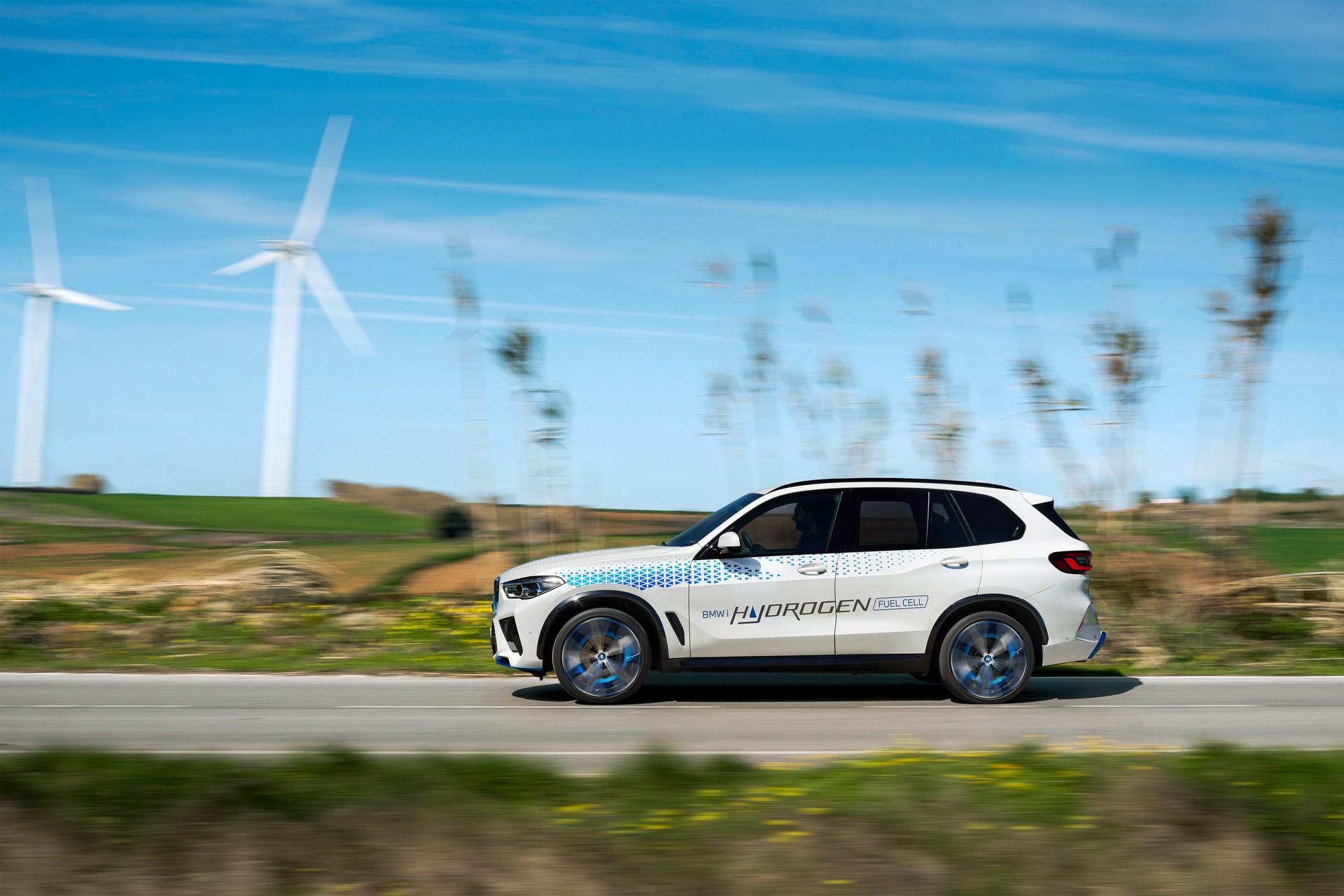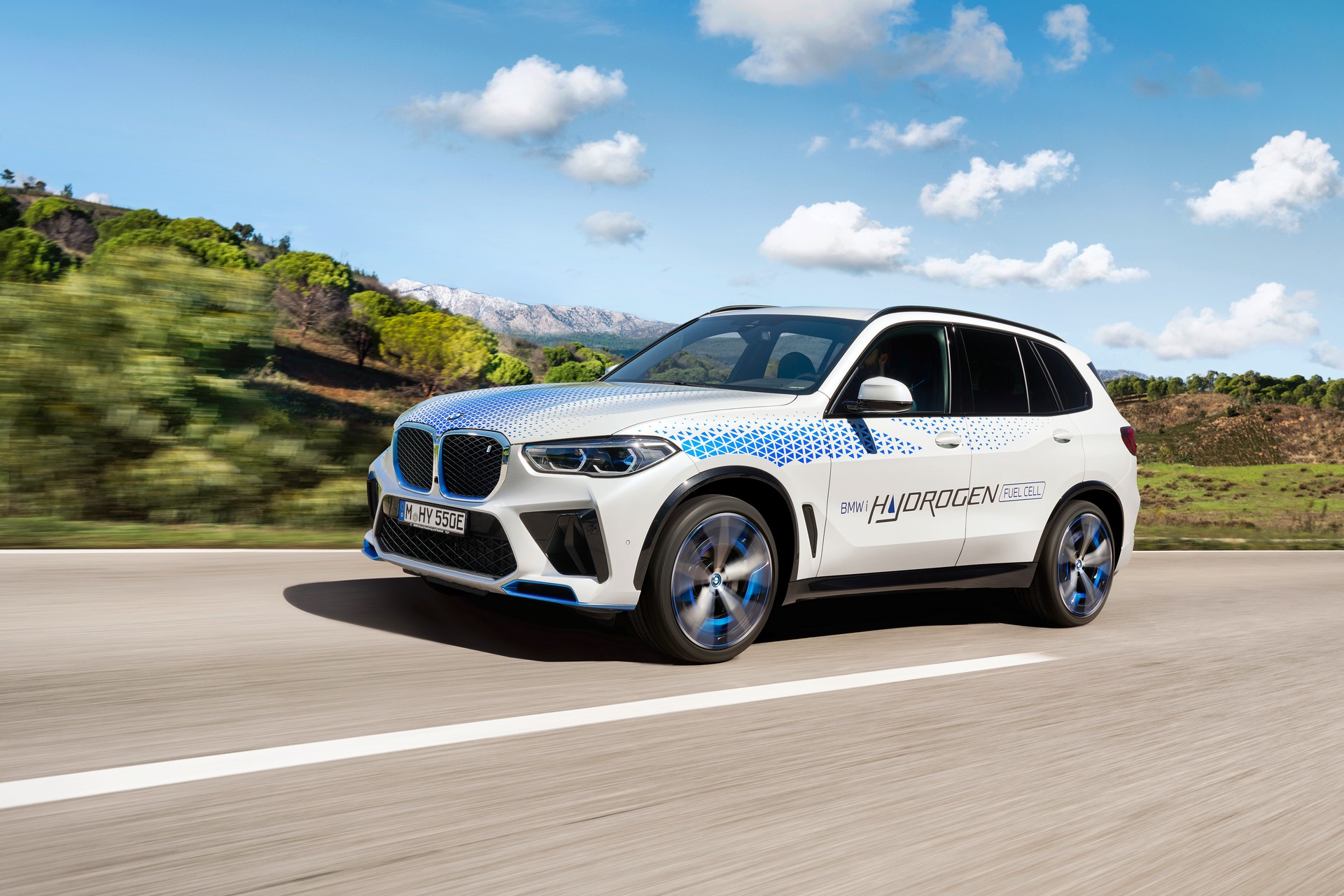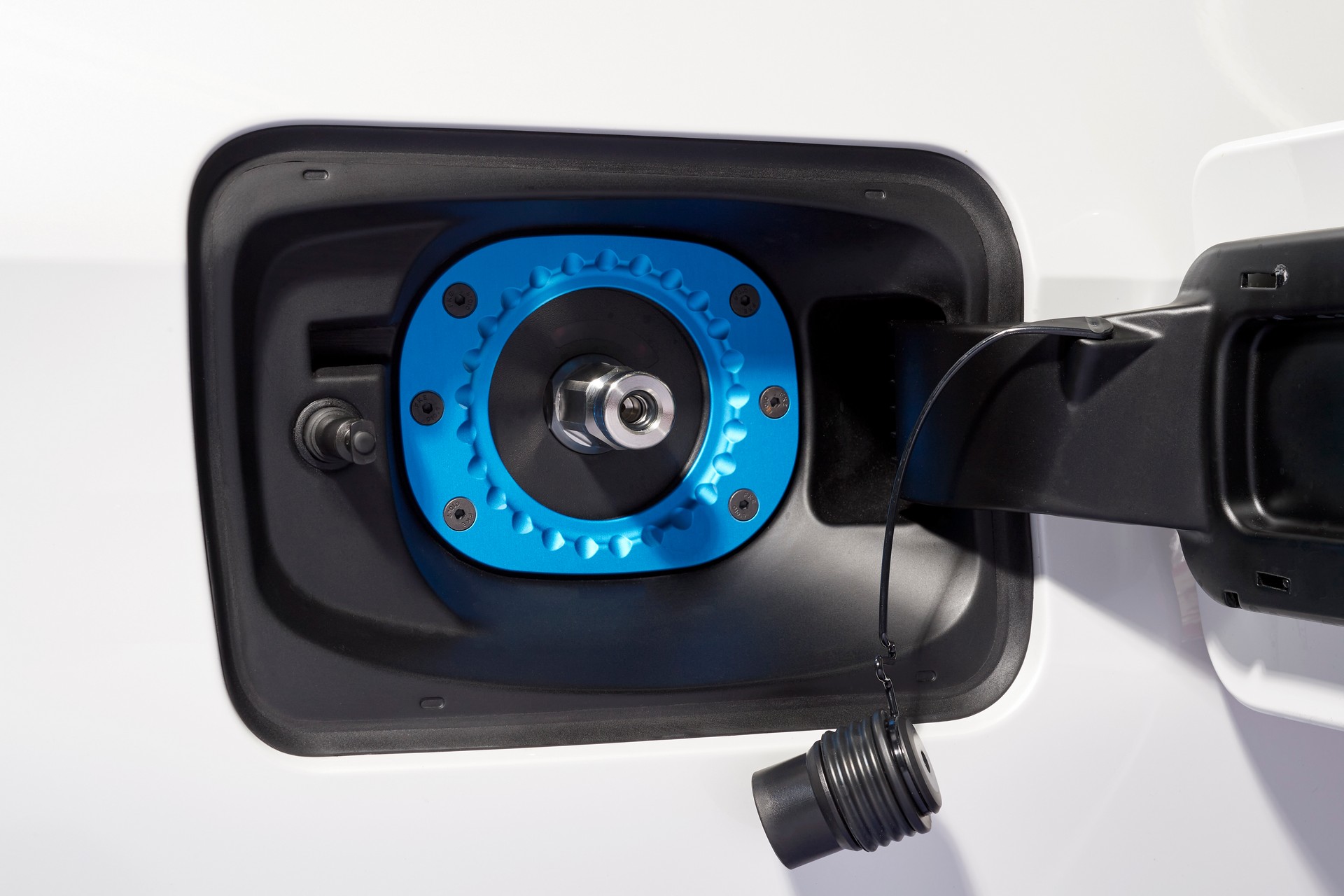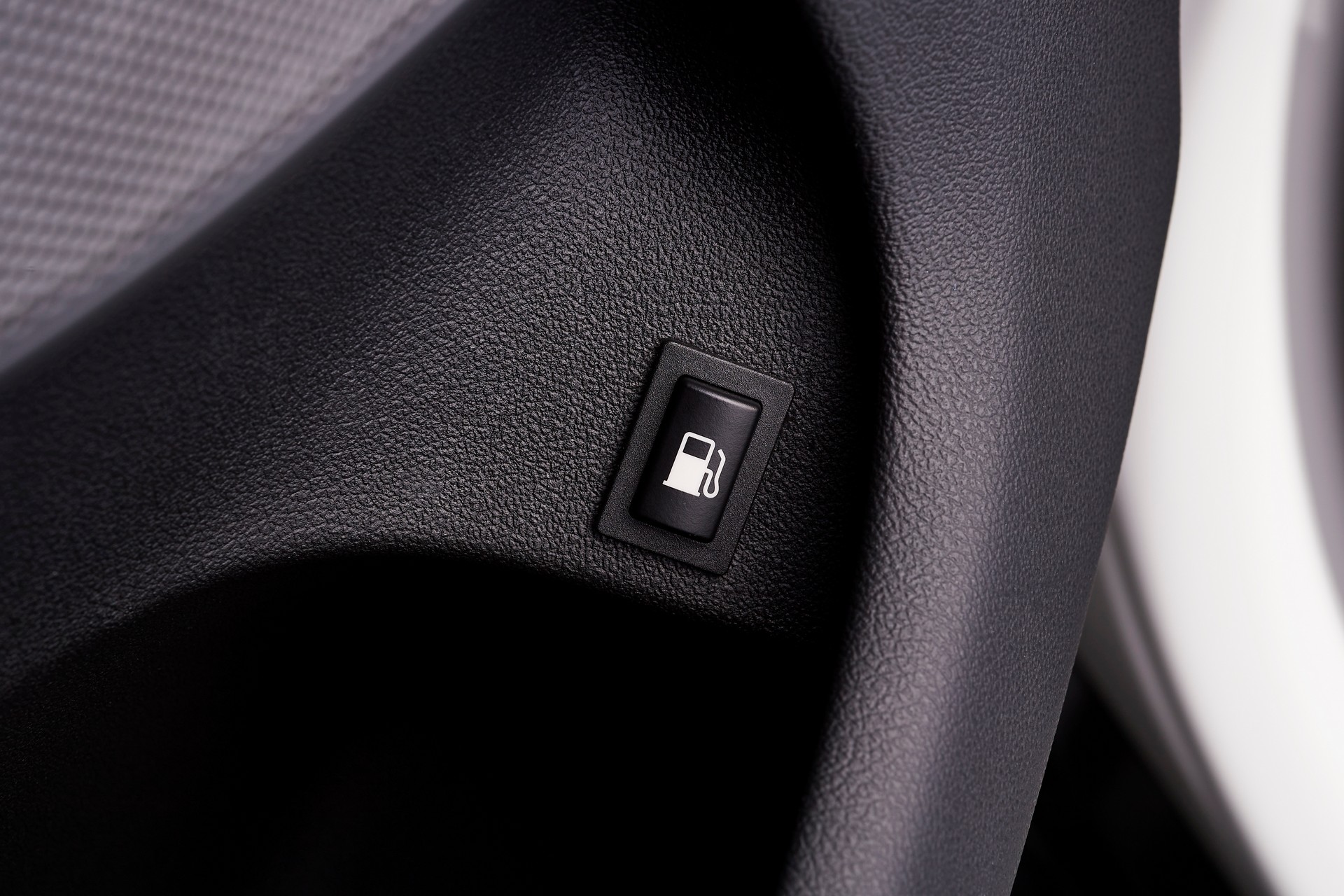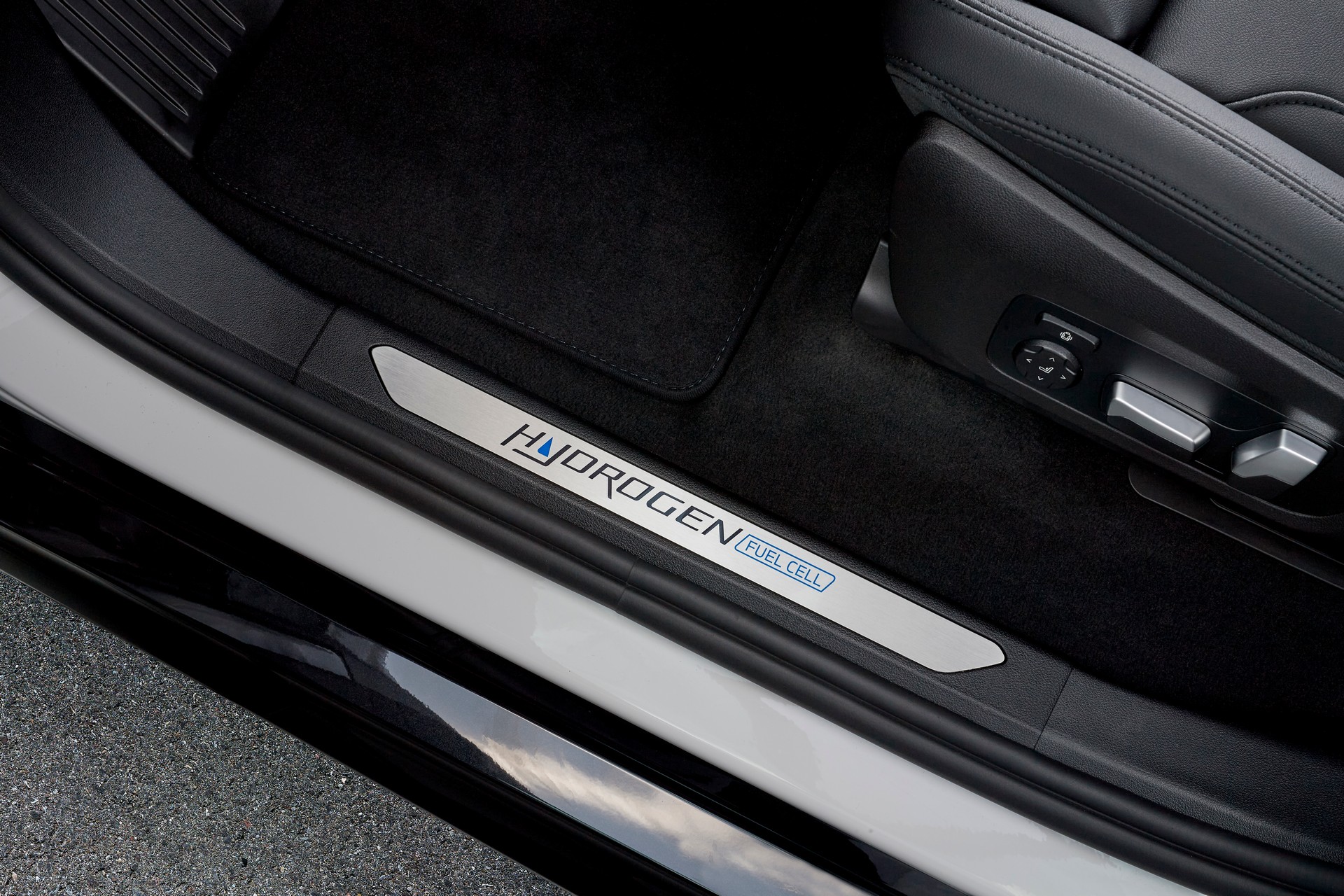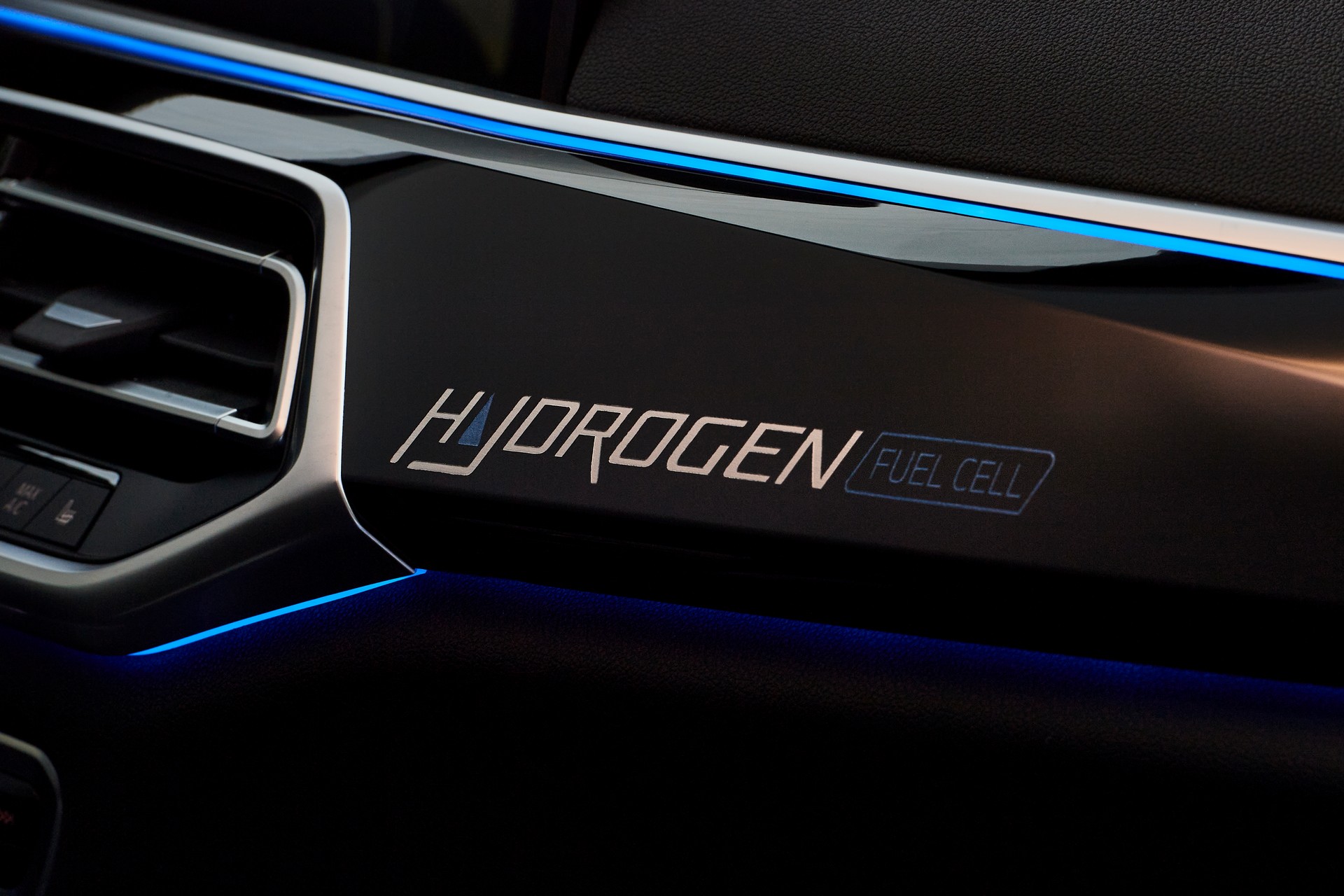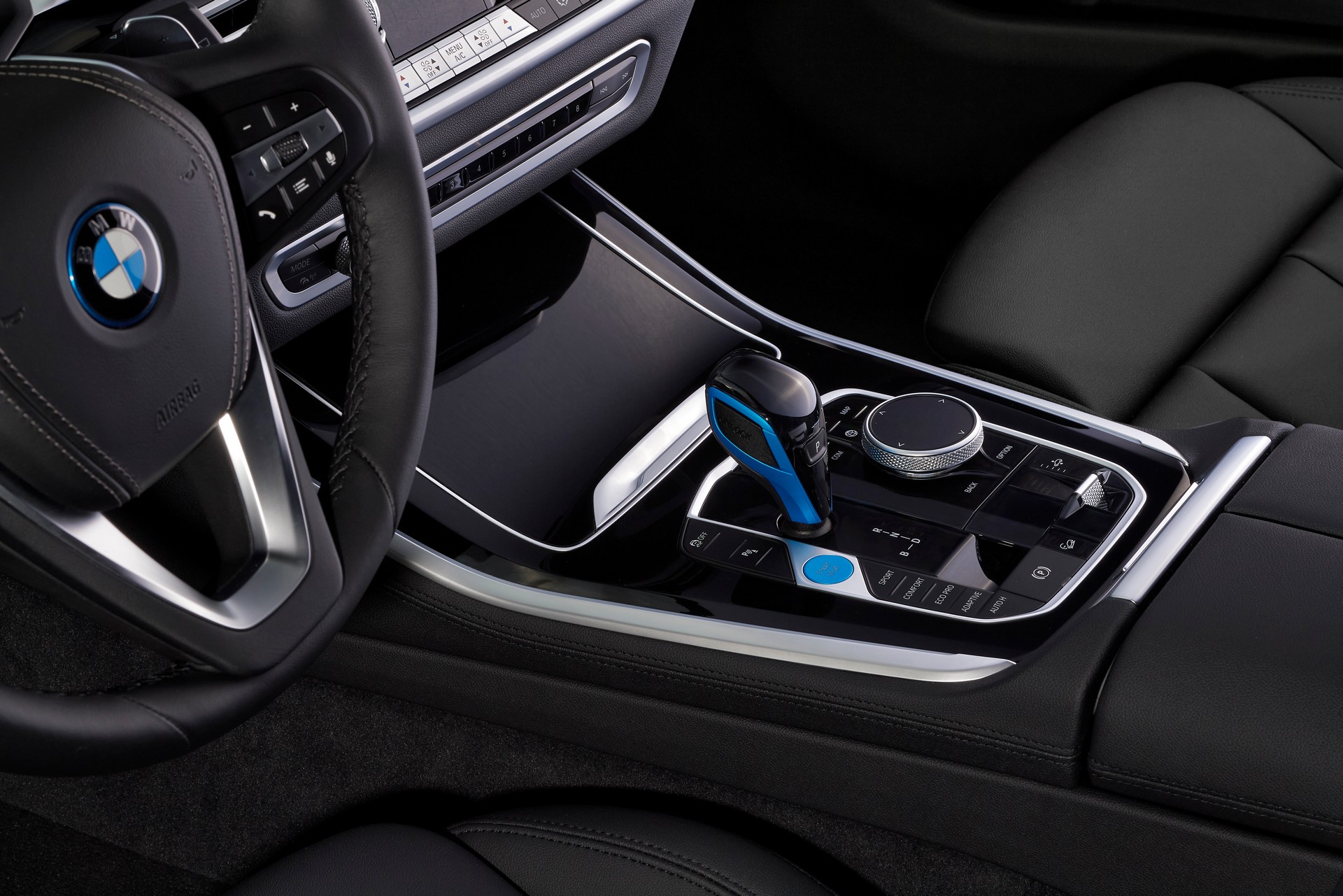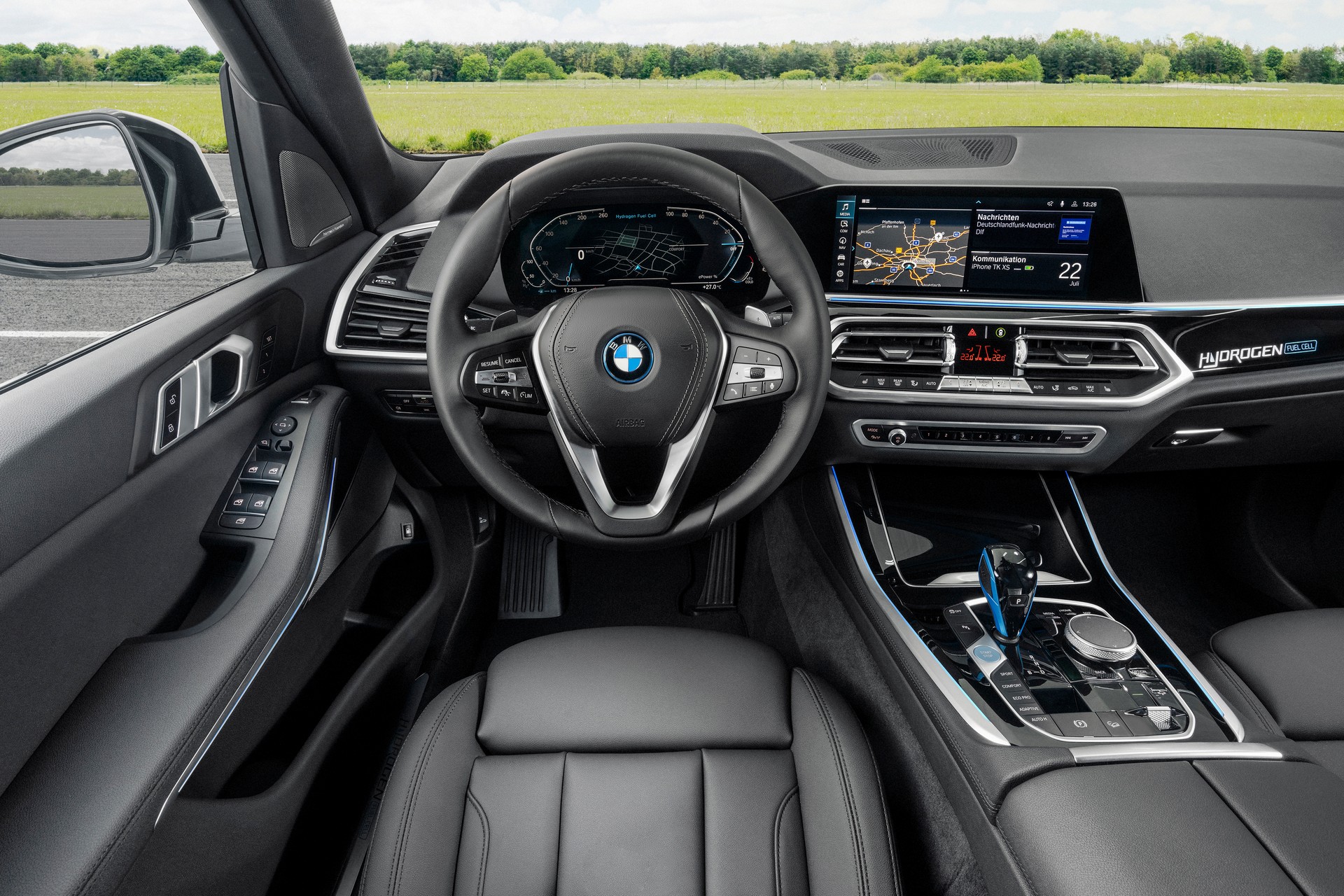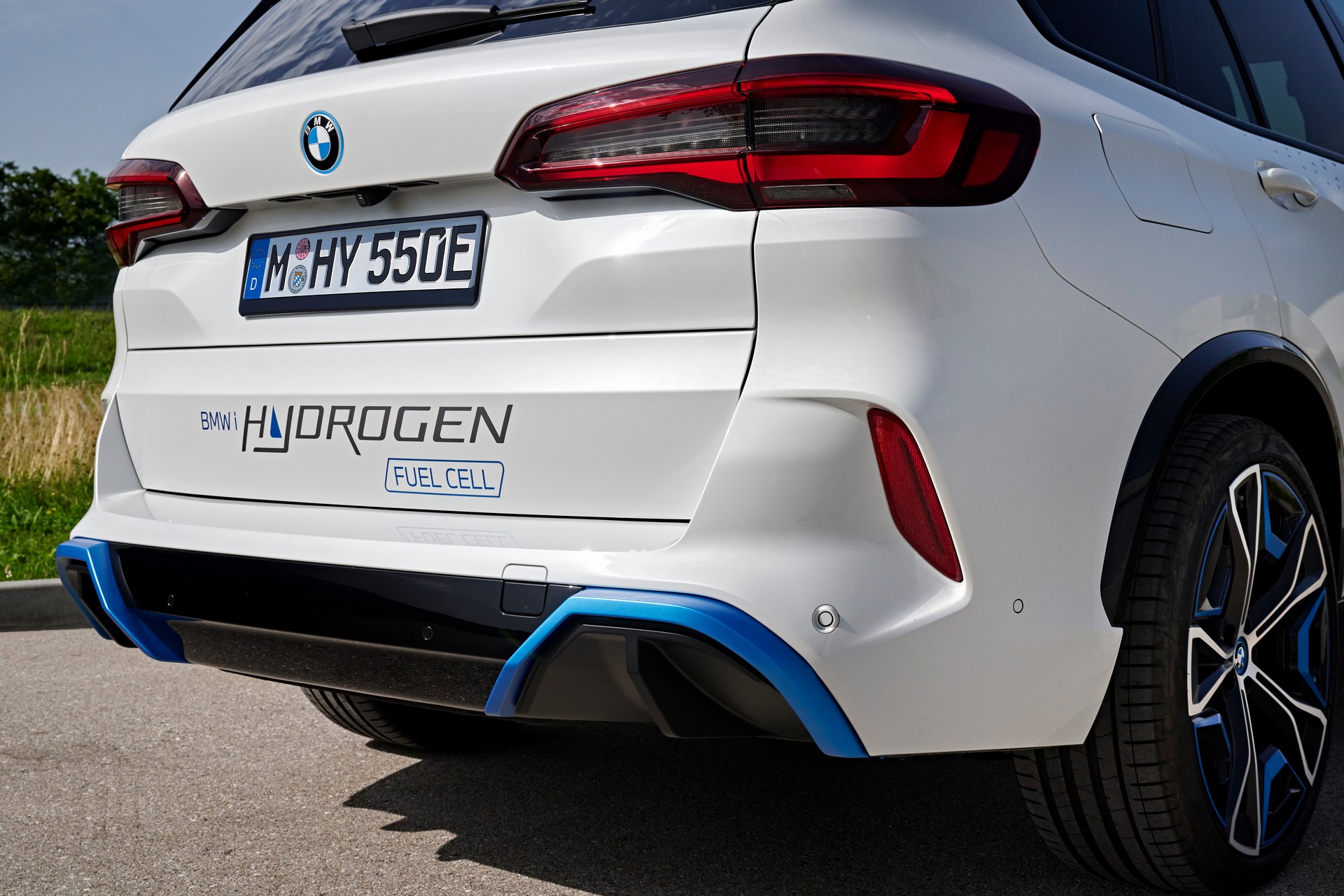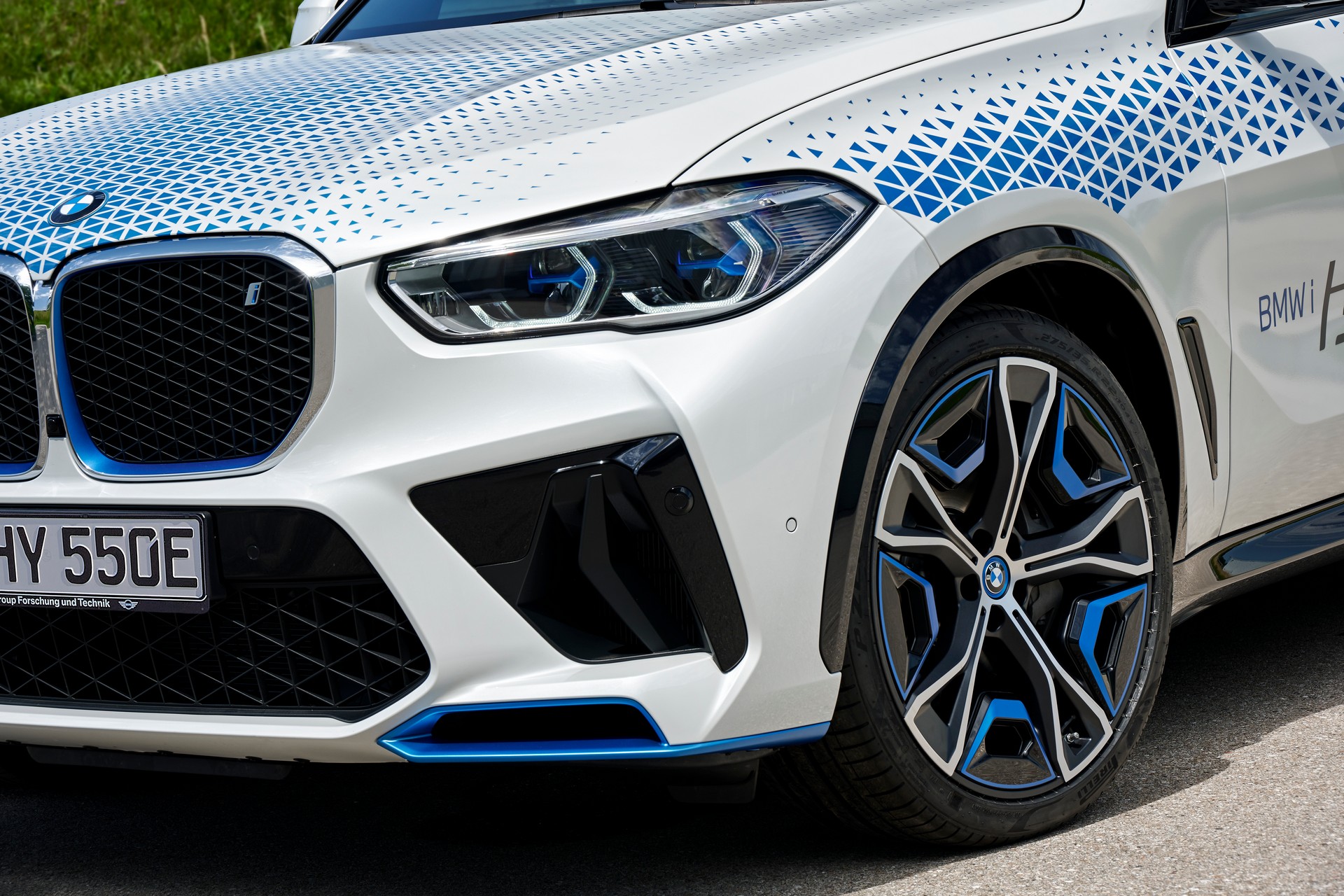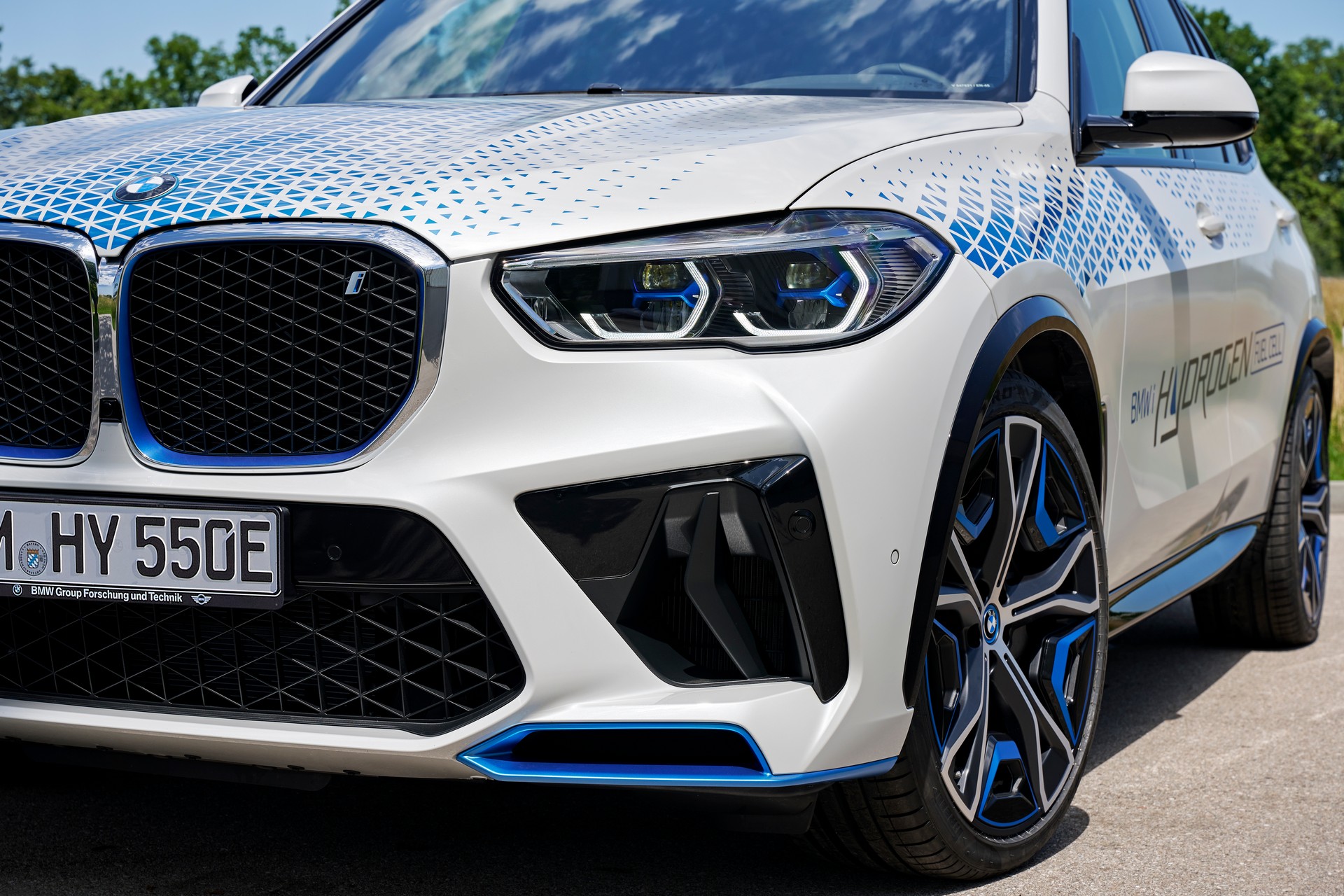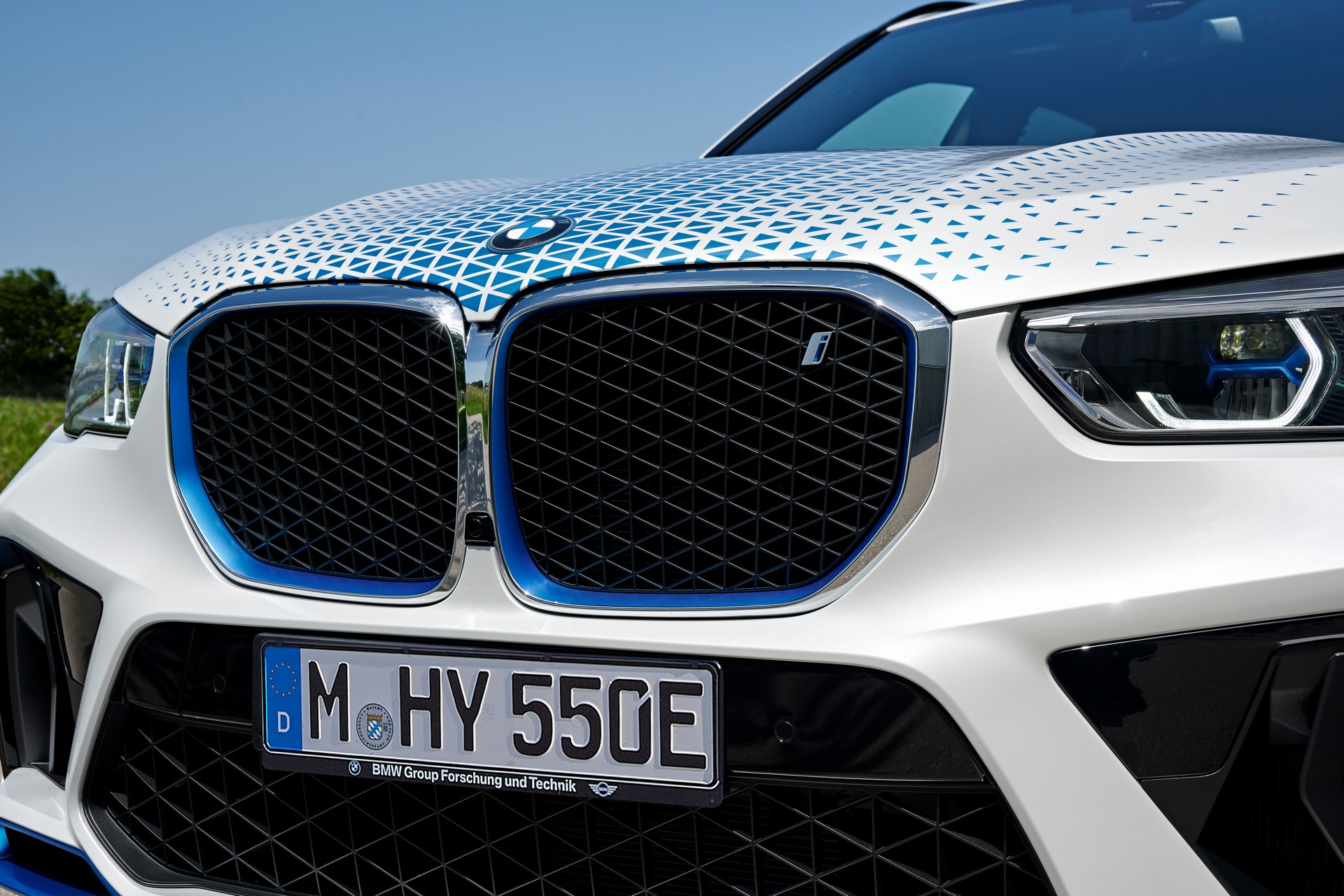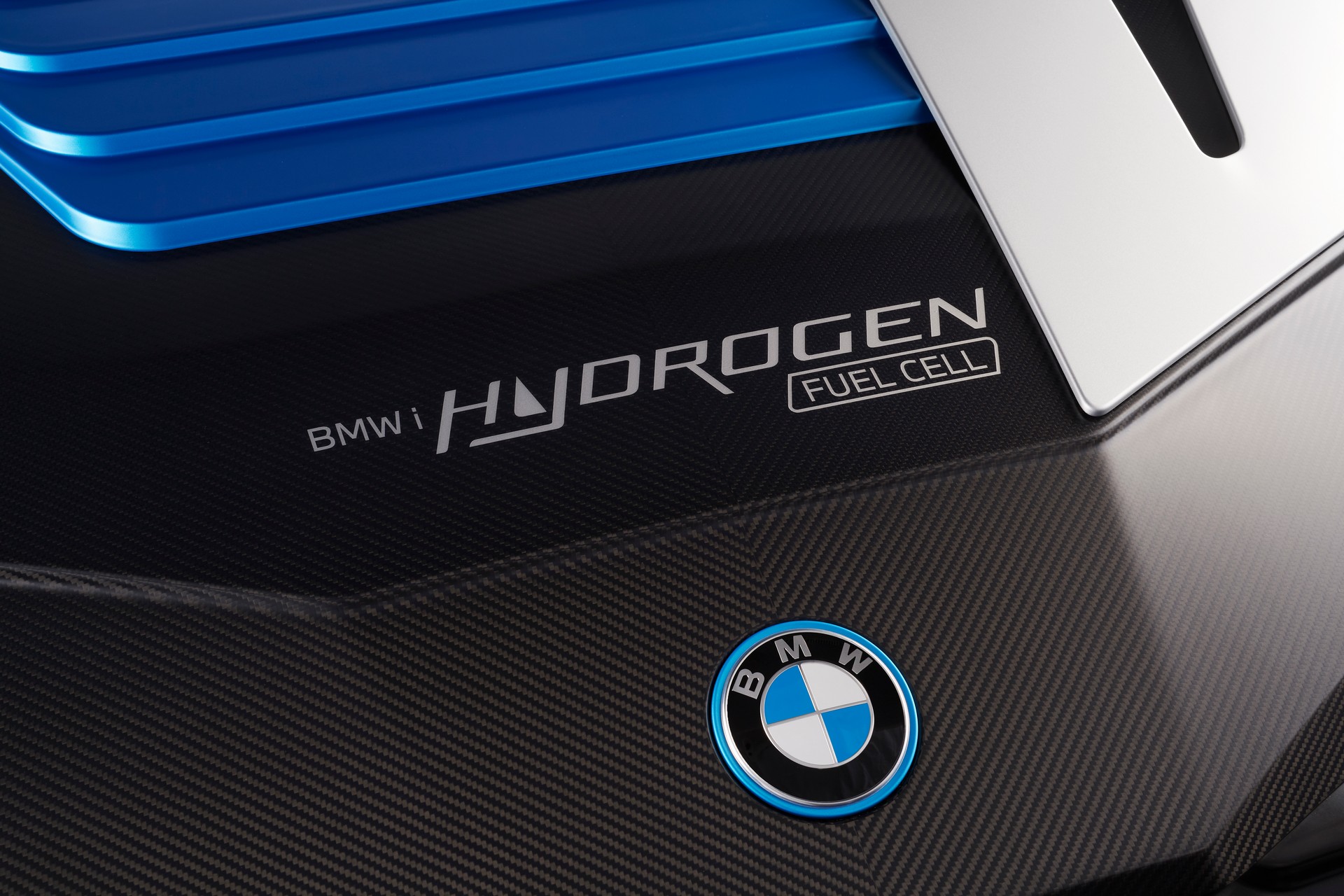BMW has massively expanded its EV lineup in the last couple of years, but the company isn’t about to gamble everything on electric power. It plans to keep the combustion flame alive, and also believes in the viability of hydrogen as an energy source.
BMW has already shown an iX5 hydrogen fuel cell-powered concept, and now it has announced that the clean SUV has entered small-scale production at a pilot plant at BMW’s Research and Innovation Centre in Munich.
BMW employs around 900 people there, working across up to six projects including concept car construction and the development of new cars before they enter mass production. The team’s experience with low volume projects makes them well suited to the hydrogen X5’s limited production.
To create an iX5, standard X5s are sent to Germany from BMW’s Spartanburg, South Carolina, plant and fitted with new floors to accommodate the two hydrogen tanks in the center tunnel and under the rear seat. The fuel cell itself is built by BMW at it Garching facility and located under the hood where the engine would be, while the electric motor built into the rear axle alongside the battery is derived from components fitted to existing BMW electric and plug-in hybrid vehicles, the company claims.
Related: BMW iX5 Hydrogen Wrapping Up Winter Testing, Limited Production Slated For Later This Year
“We are certain that hydrogen is set to gain significantly in importance for individual mobility and therefore consider a mixture of battery and fuel cell electric drive systems to be a sensible approach in the long term,” said Frank Weber, BMW board member and head of the iX5 program.
“Fuel cells don’t require any critical raw materials such as cobalt, lithium or nickel either, so by investing in this type of drive system we are also strengthening the geopolitical resilience of the BMW Group.”
The firm hopes its iX5 Hydrogen test fleet will help it gain insight into the way people use hydrogen cars. But its other big aim is to help build an awareness of the tech some consumers and car companies aren’t even considering as an alternative to electric power, and will possibly continue to ignore until the hydrogen economy and refuelling infrastructure gets some major investment.




